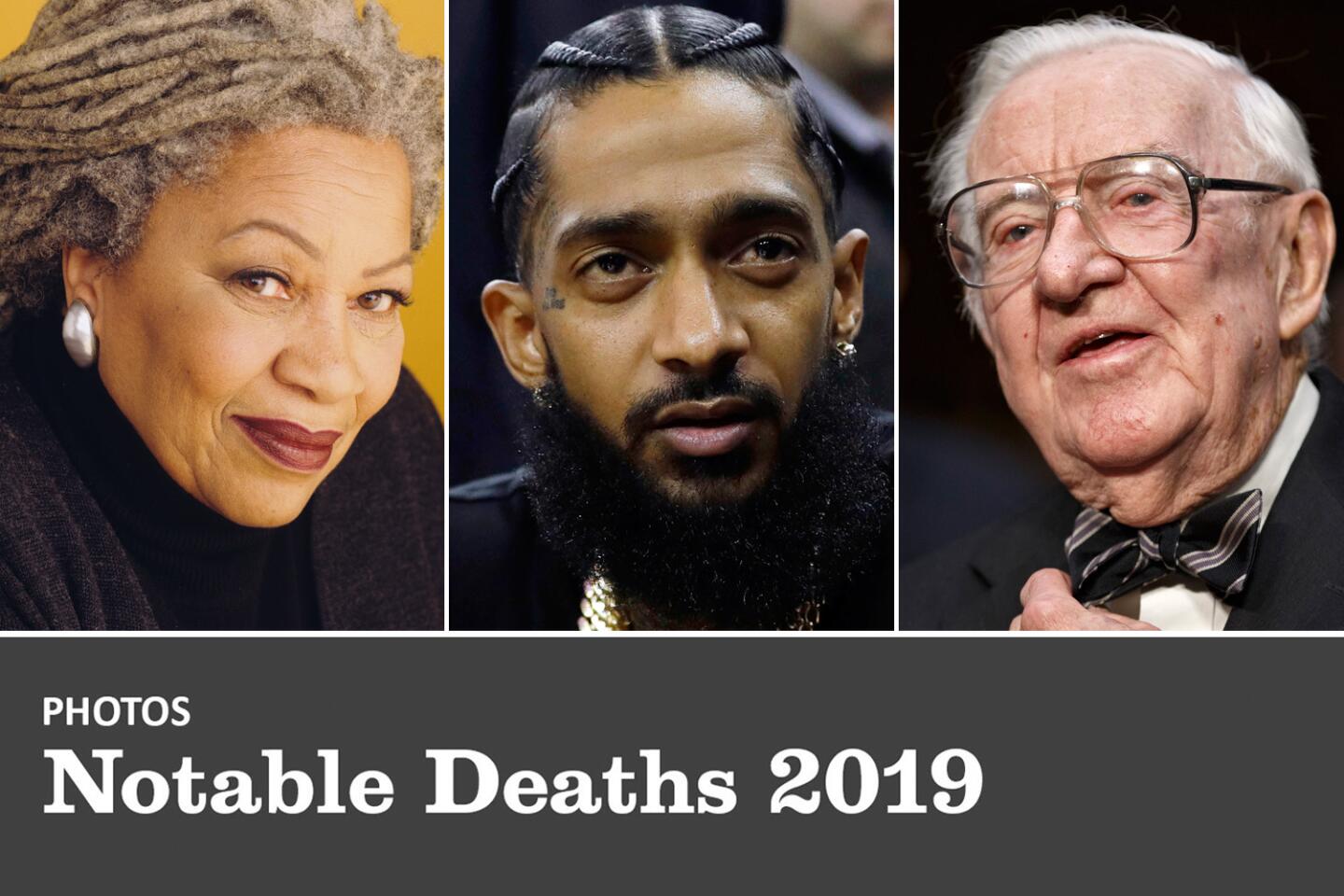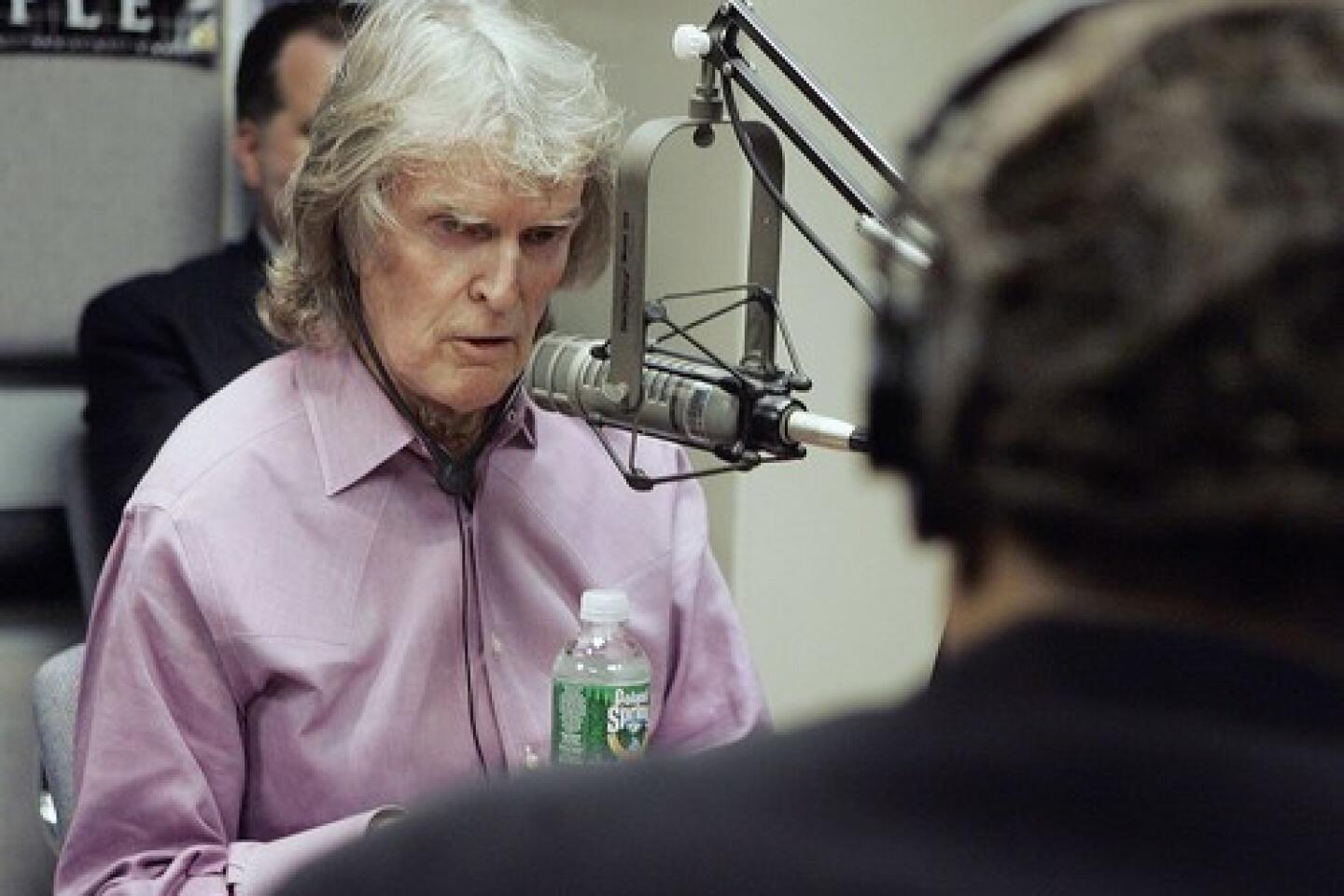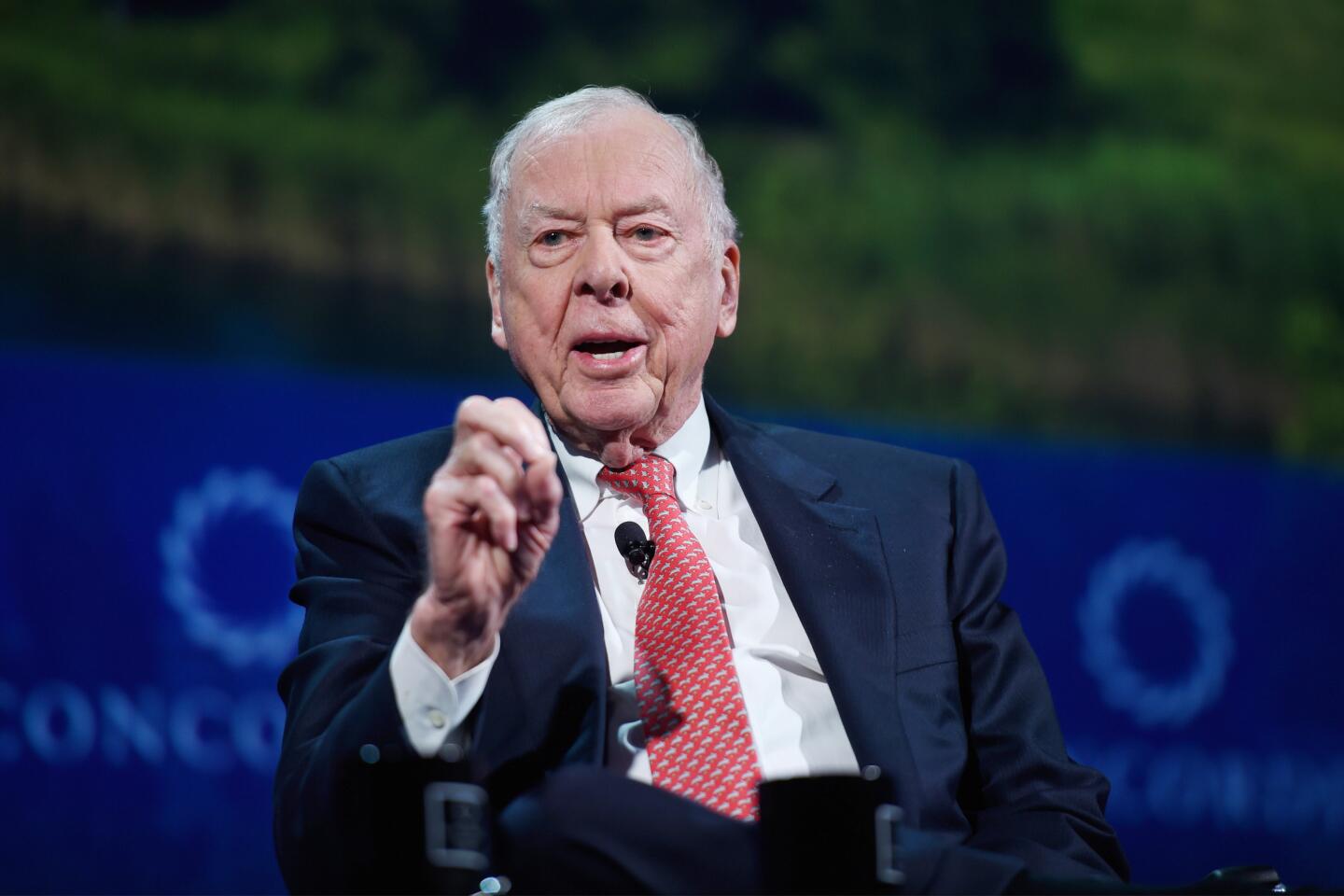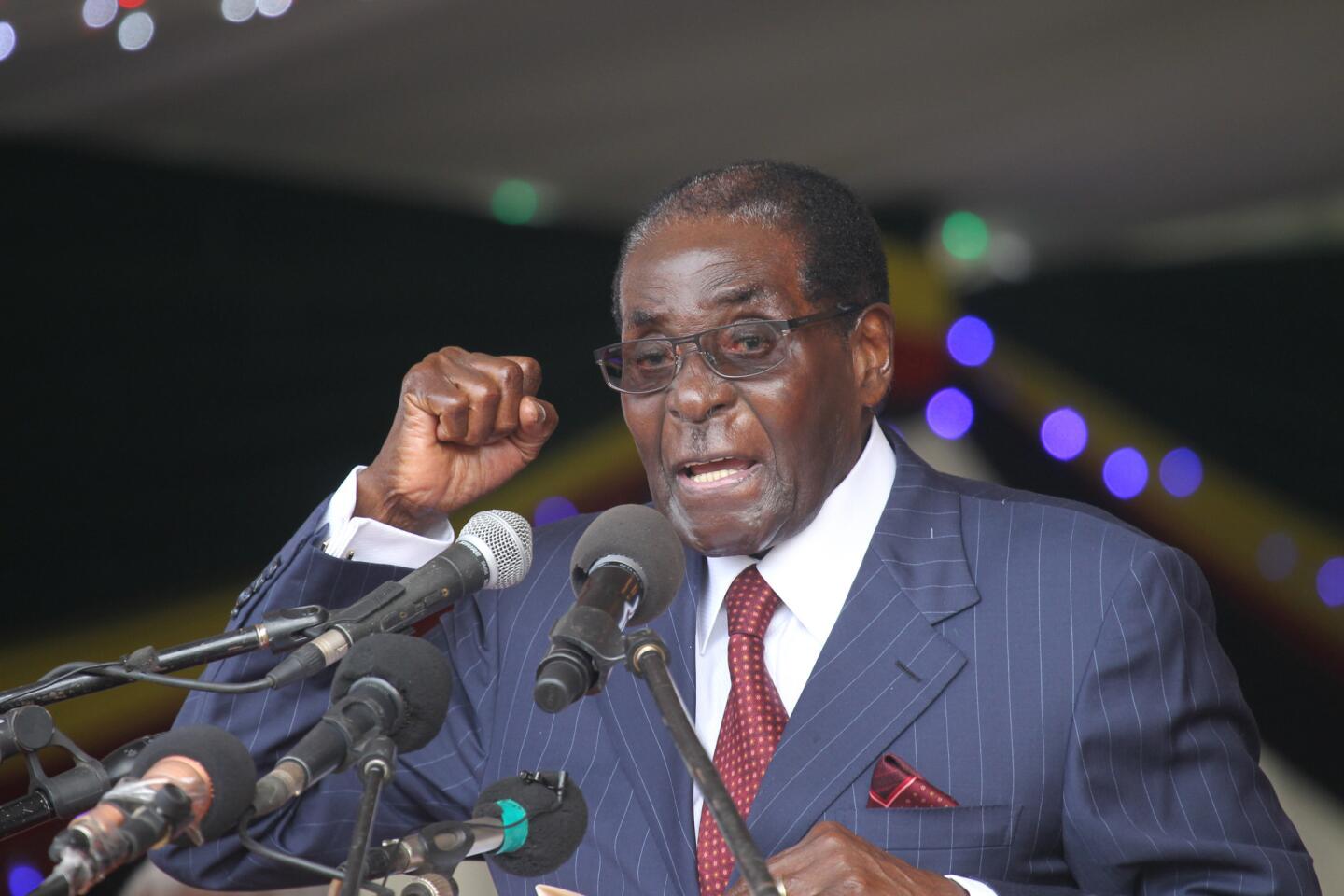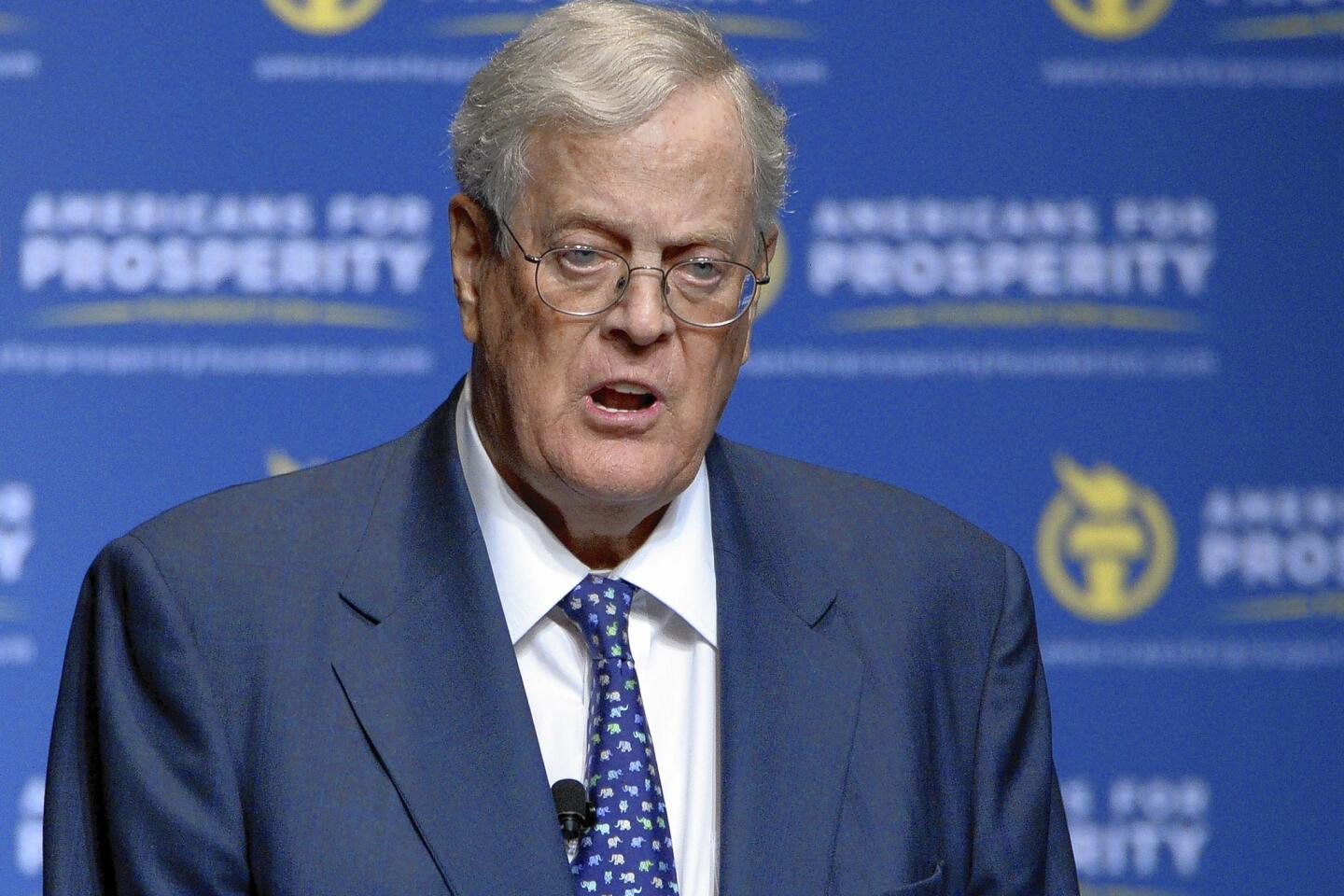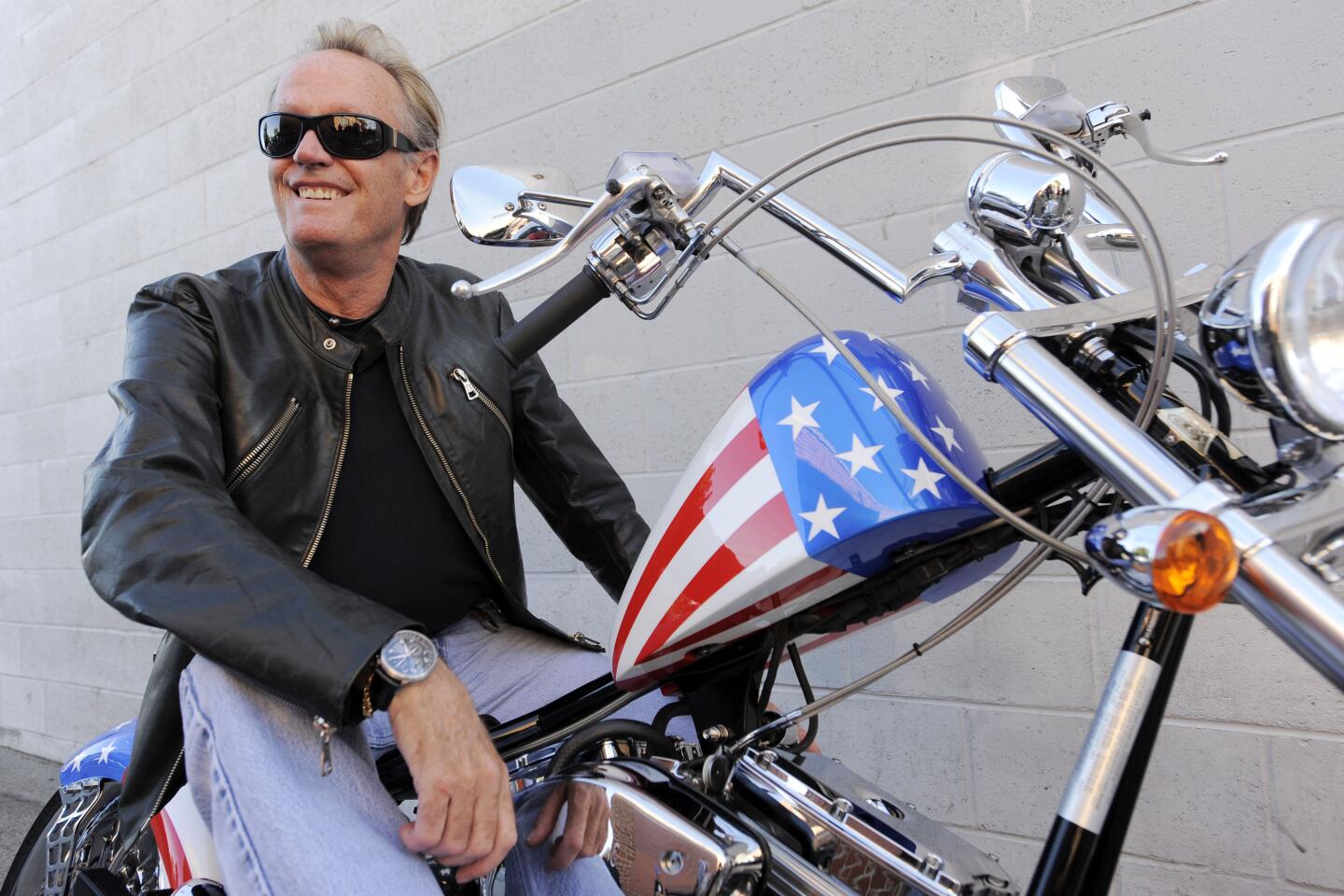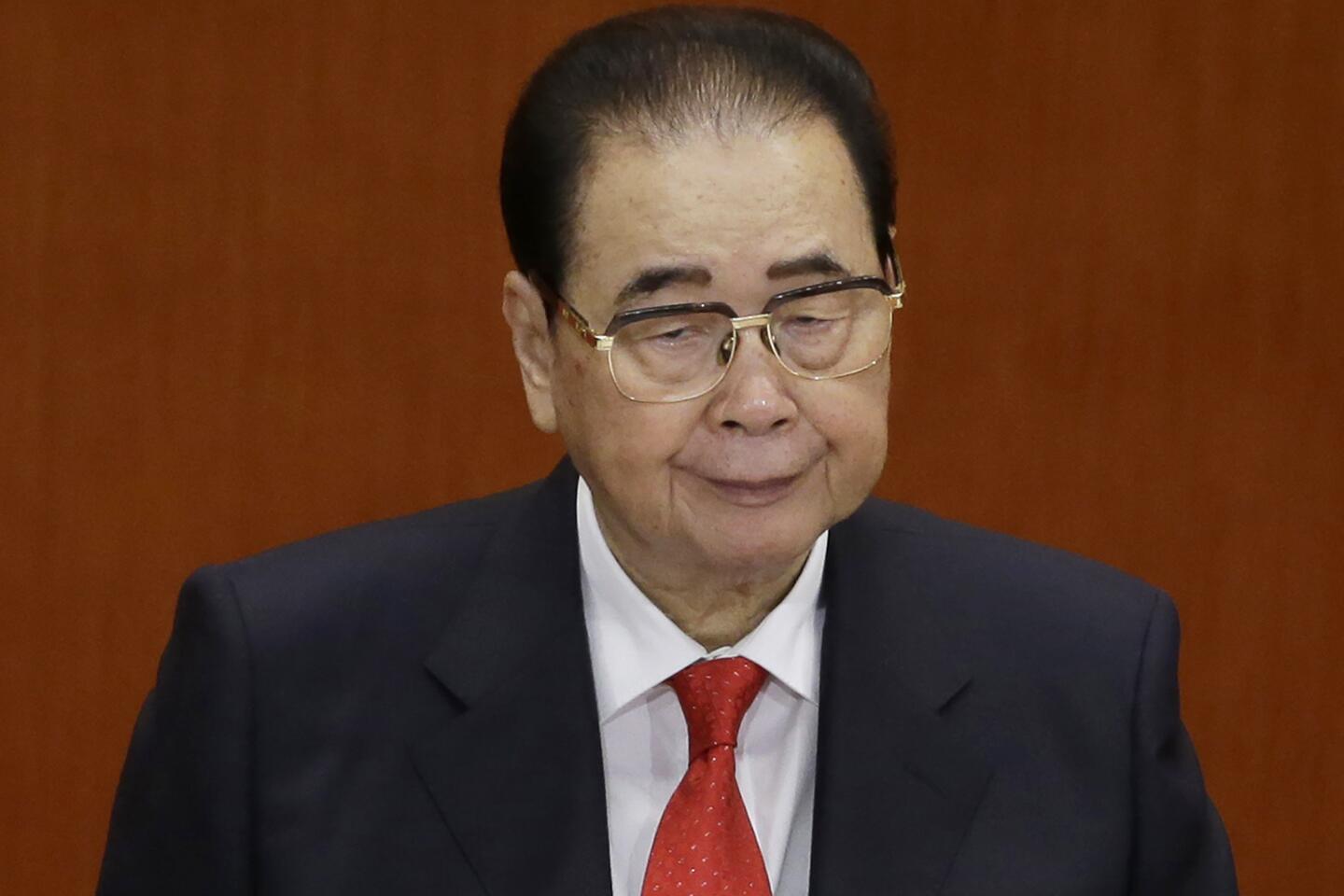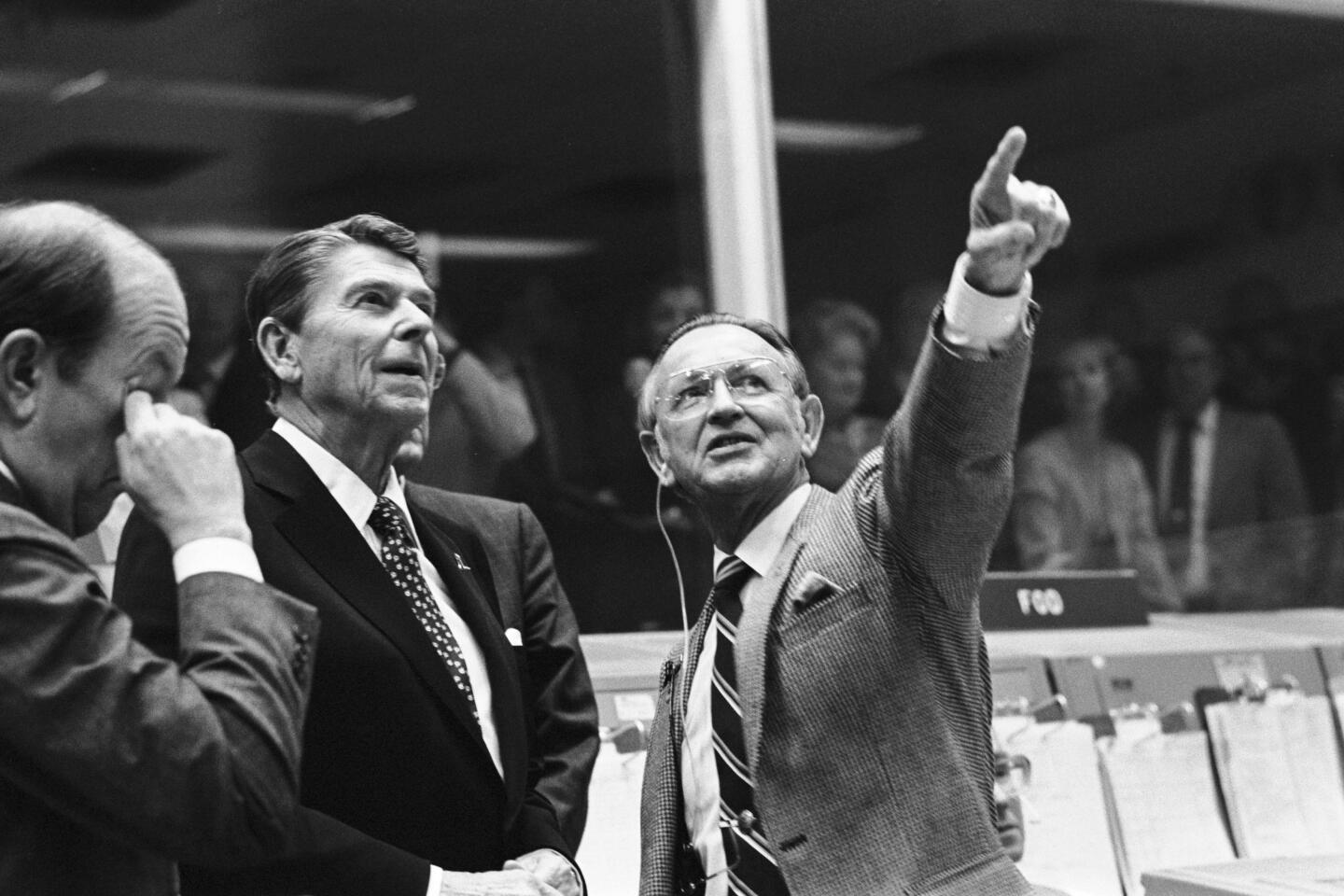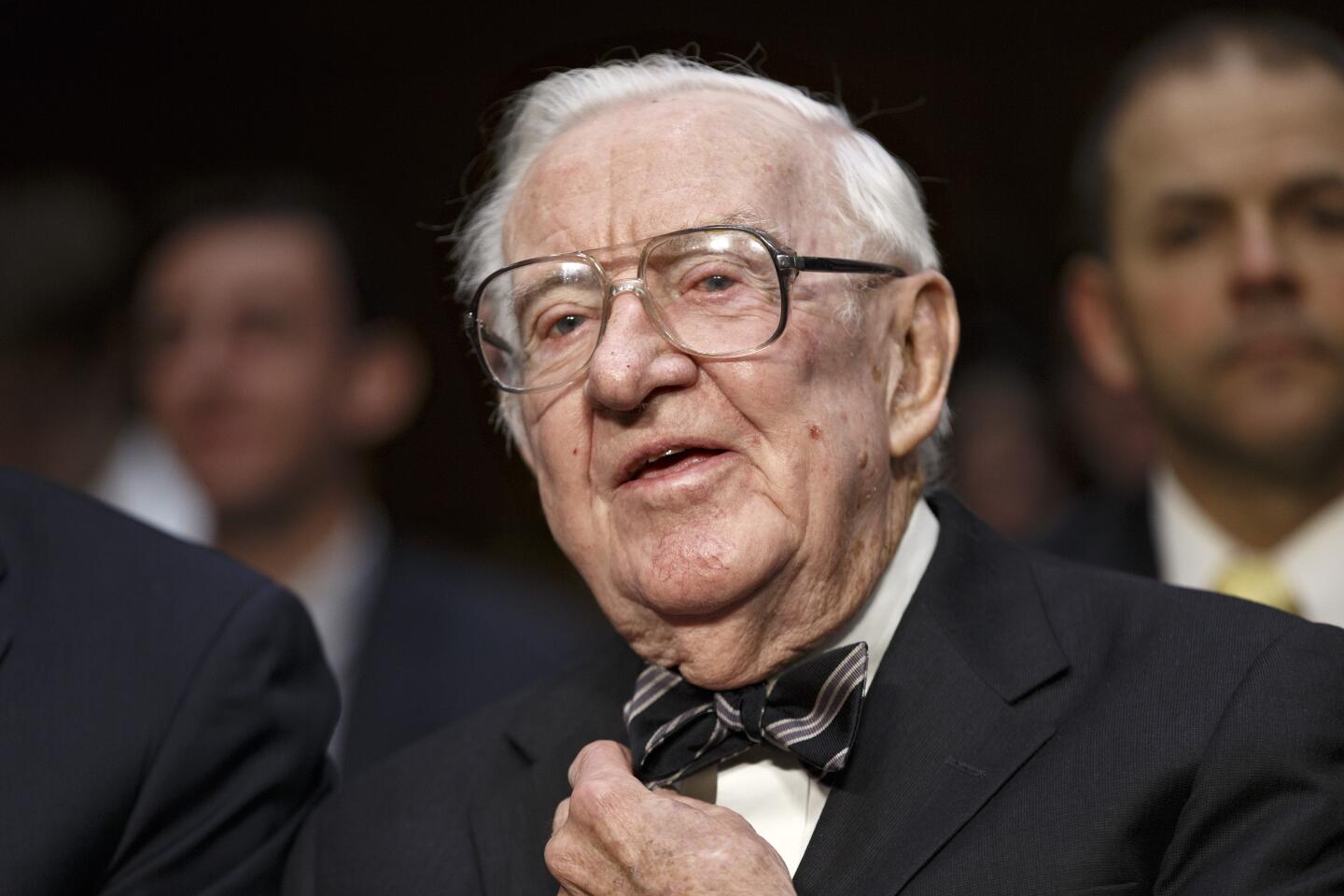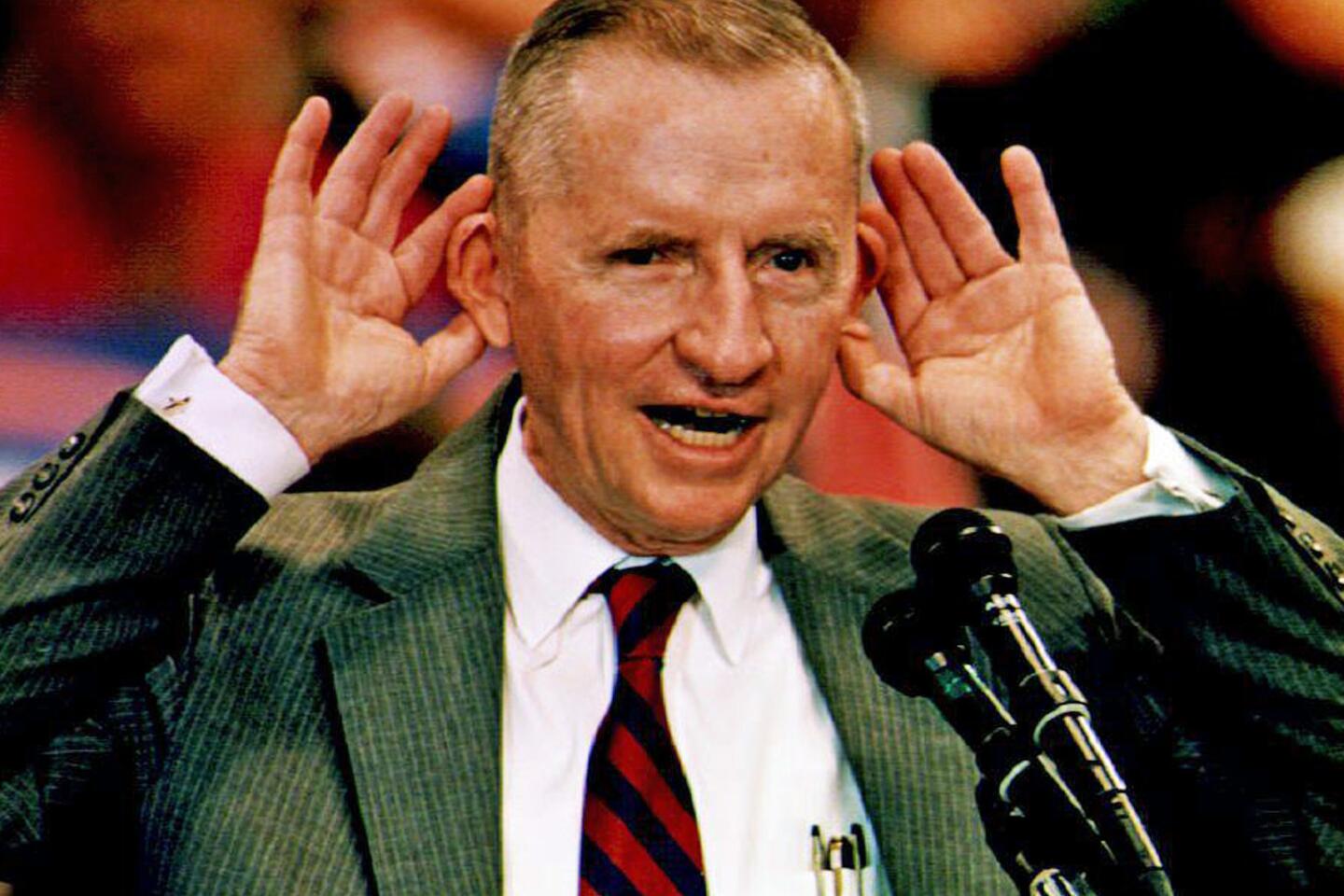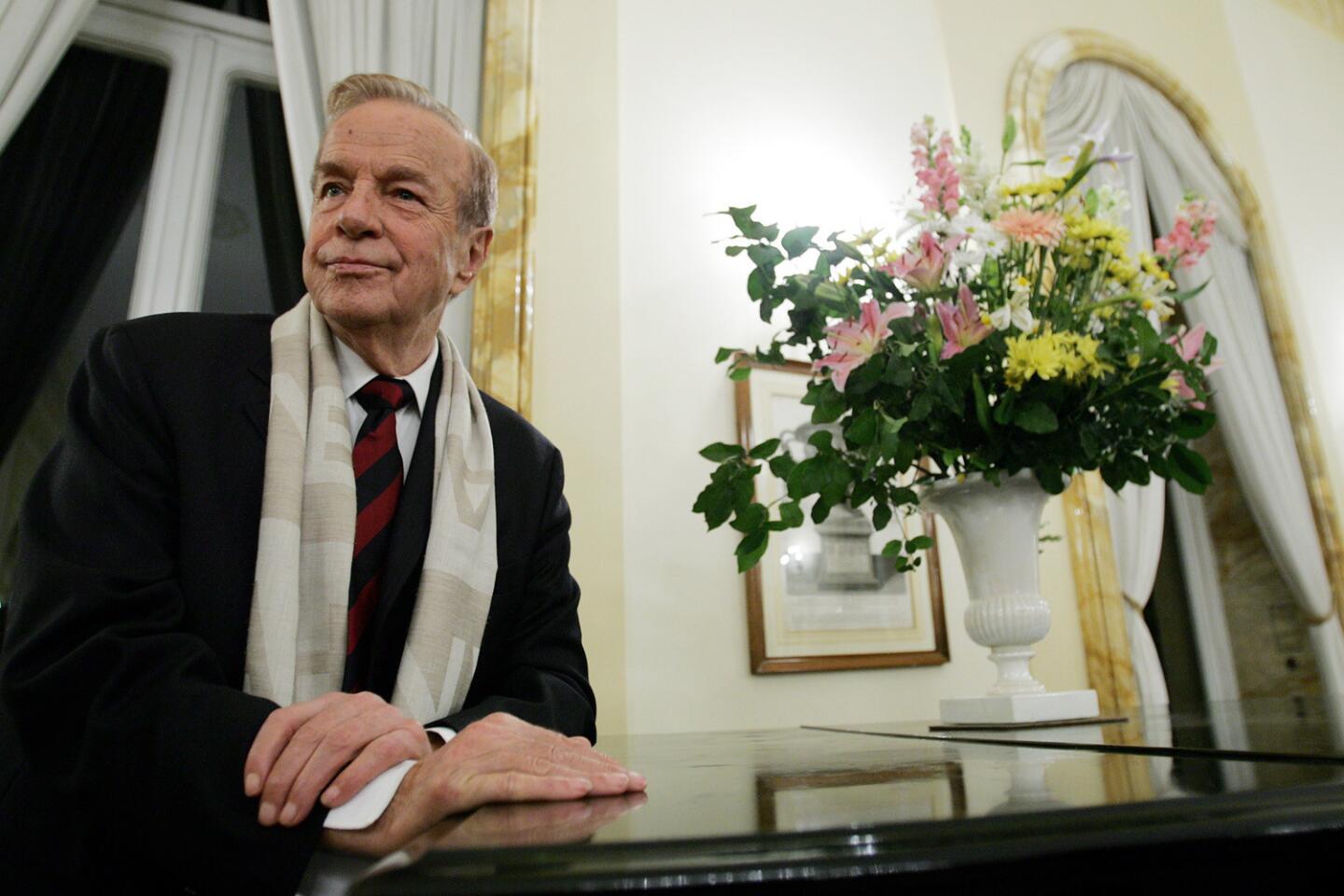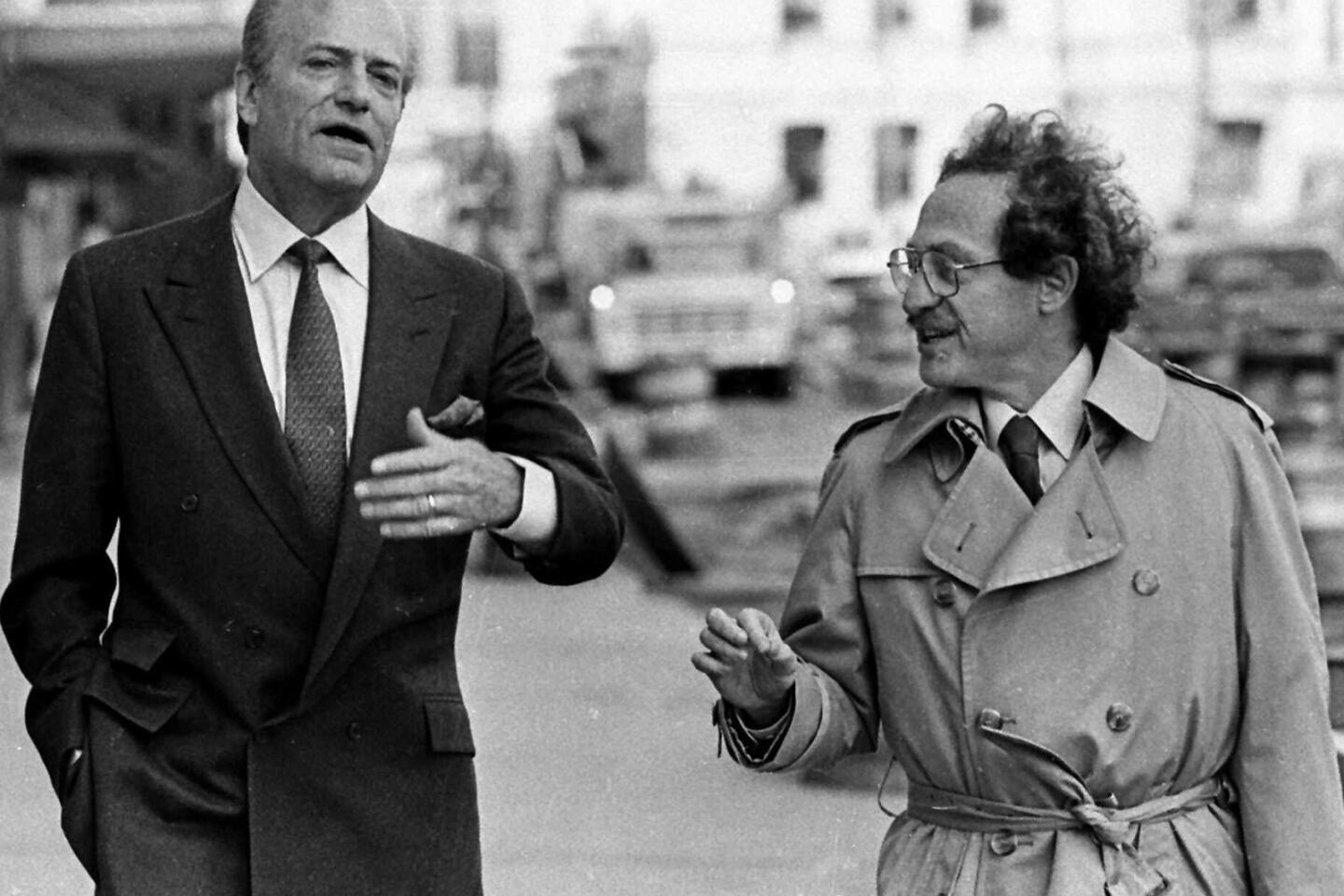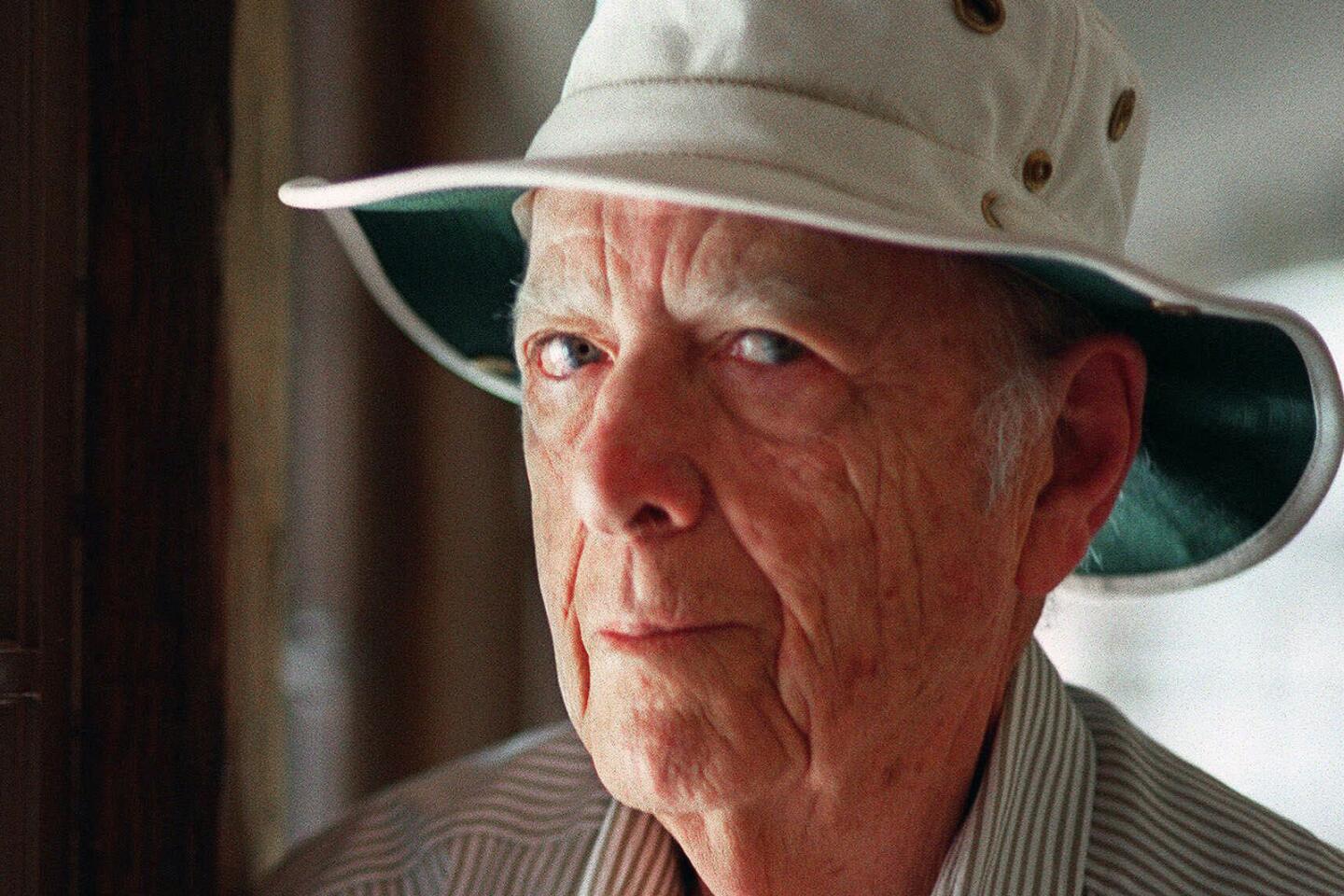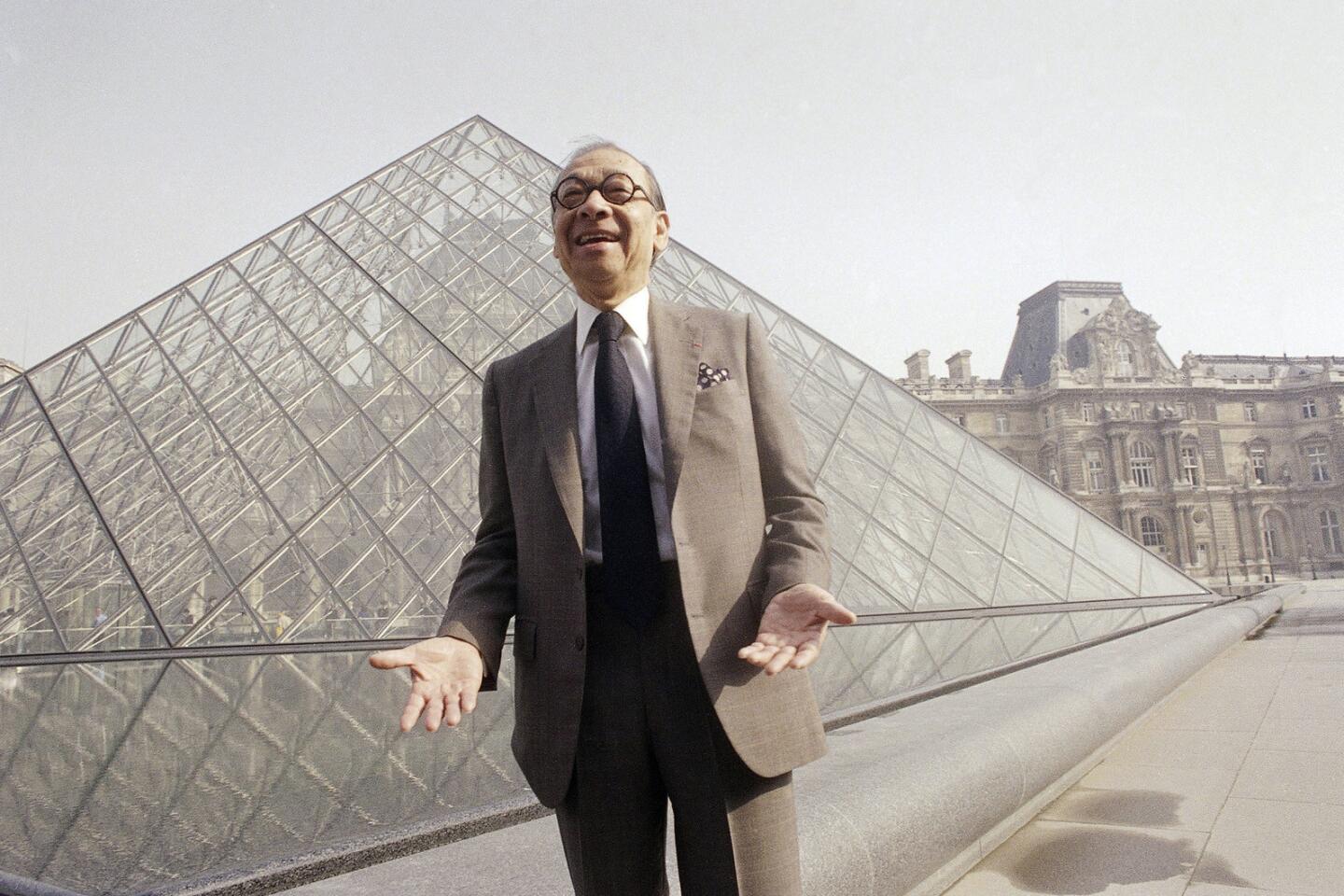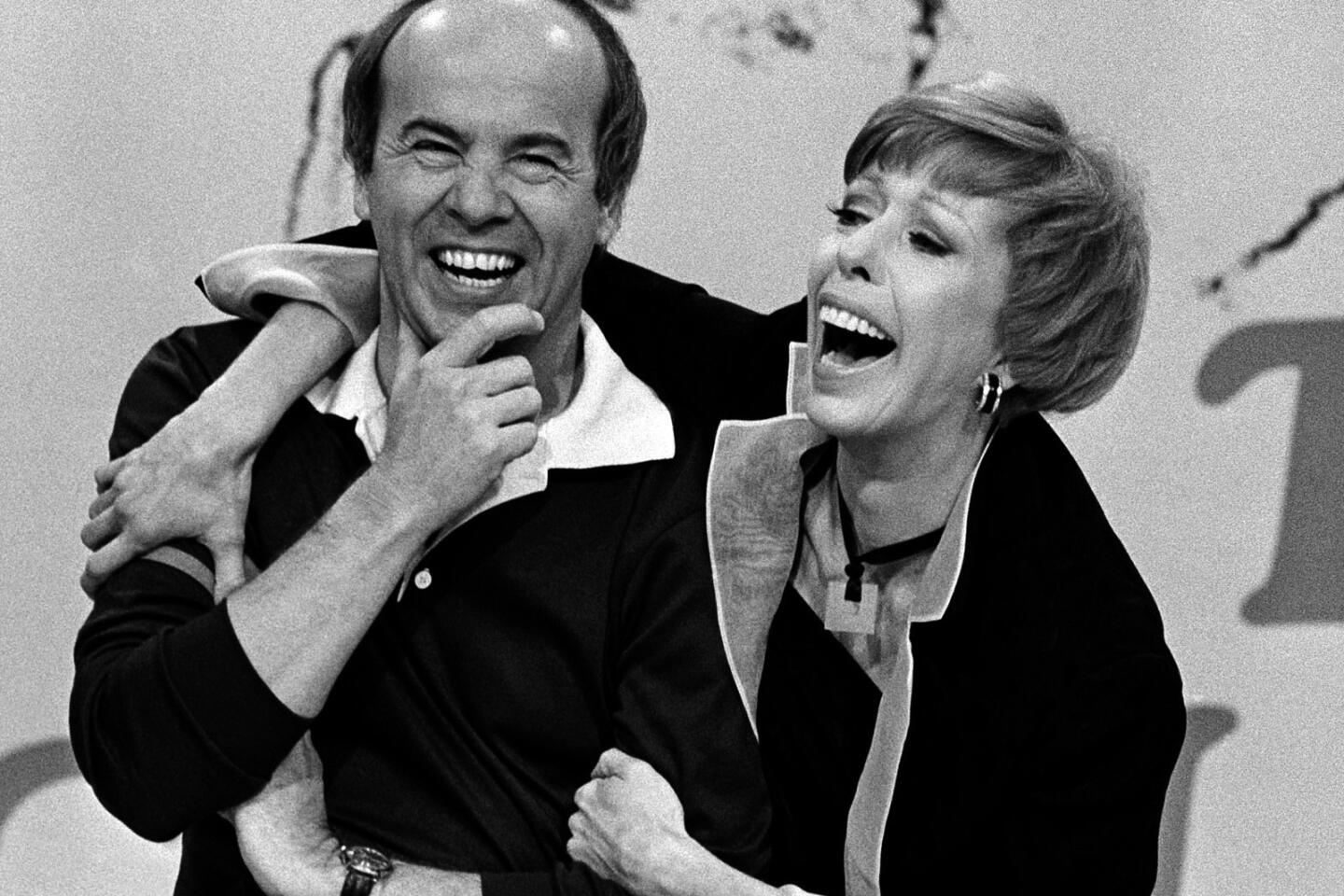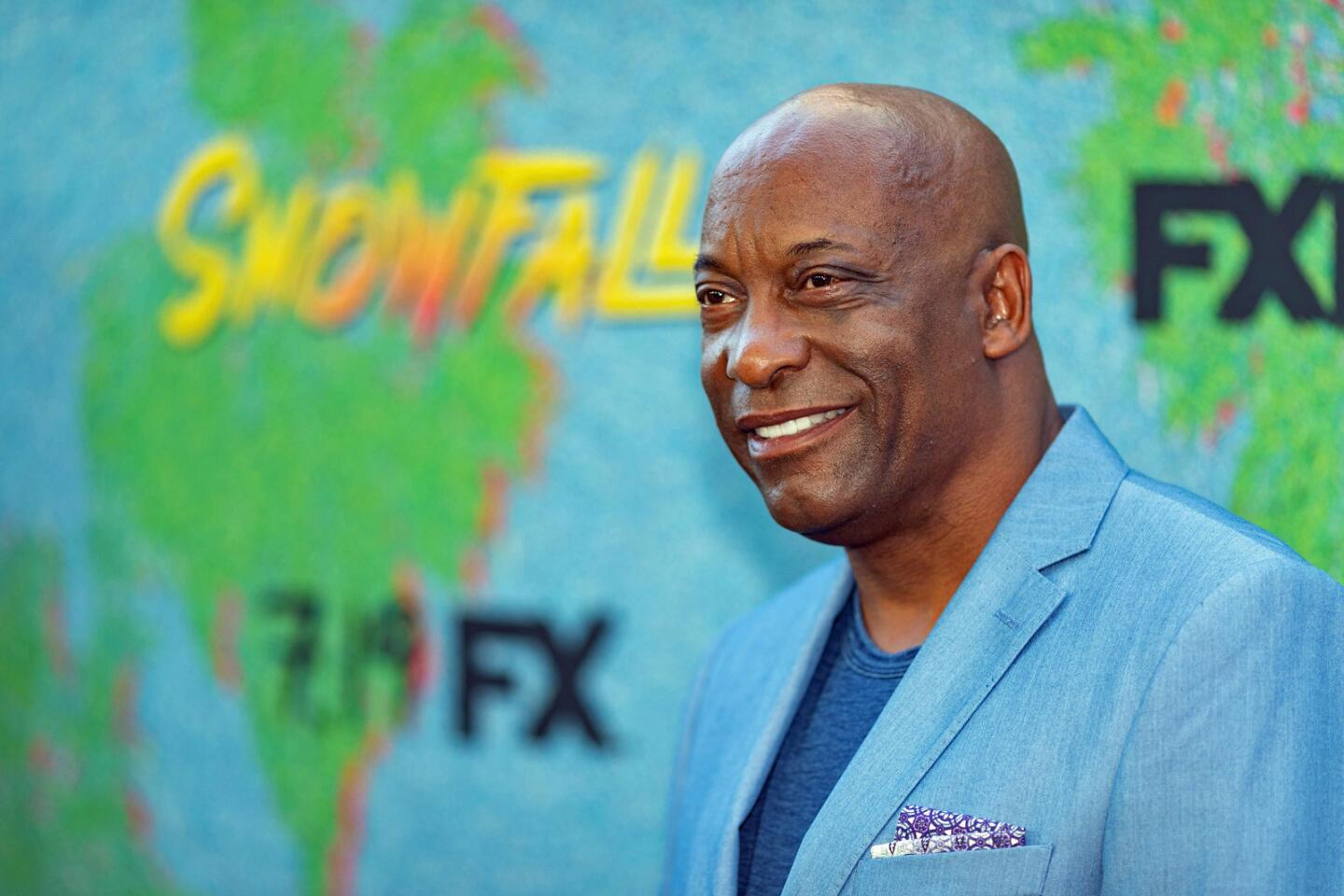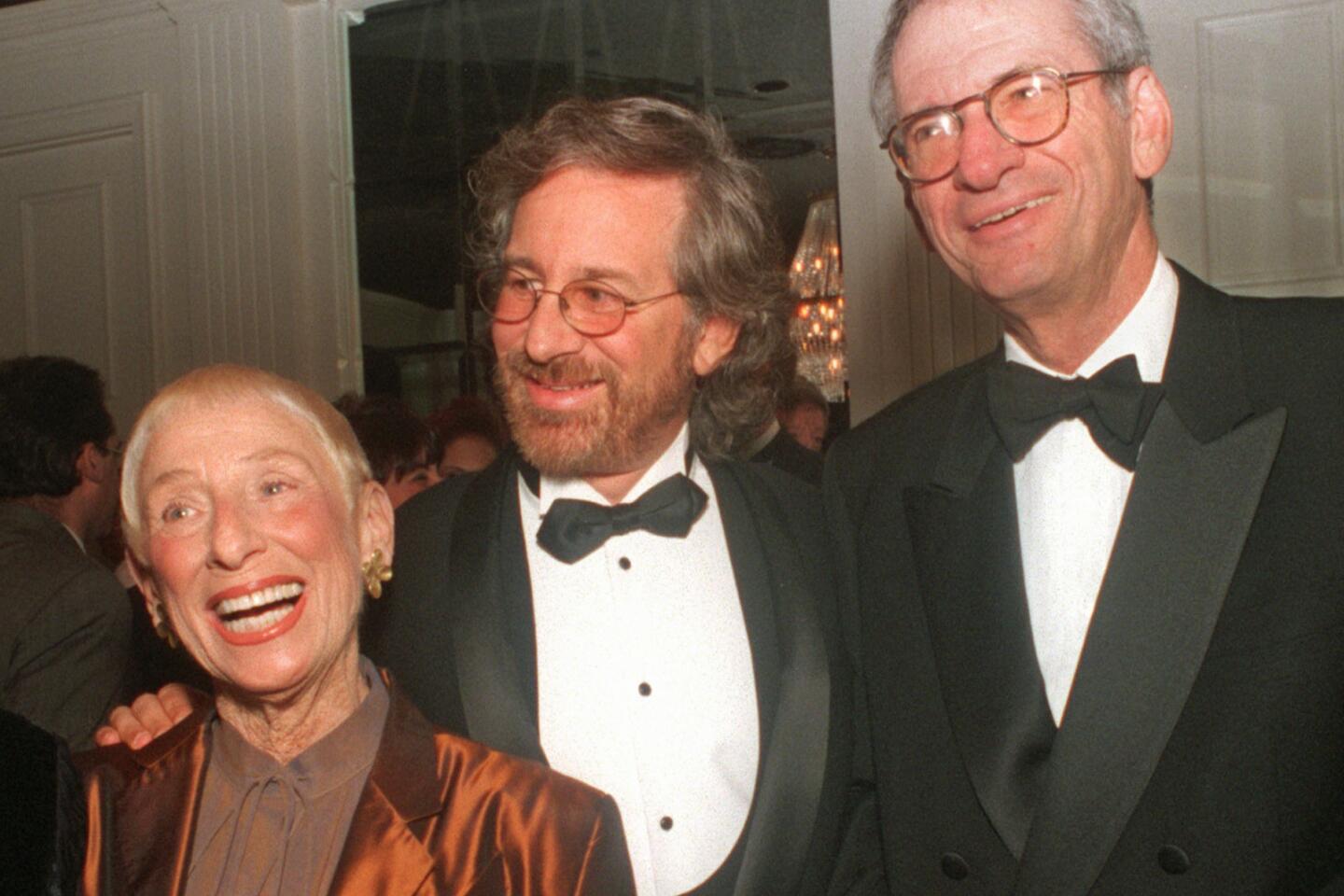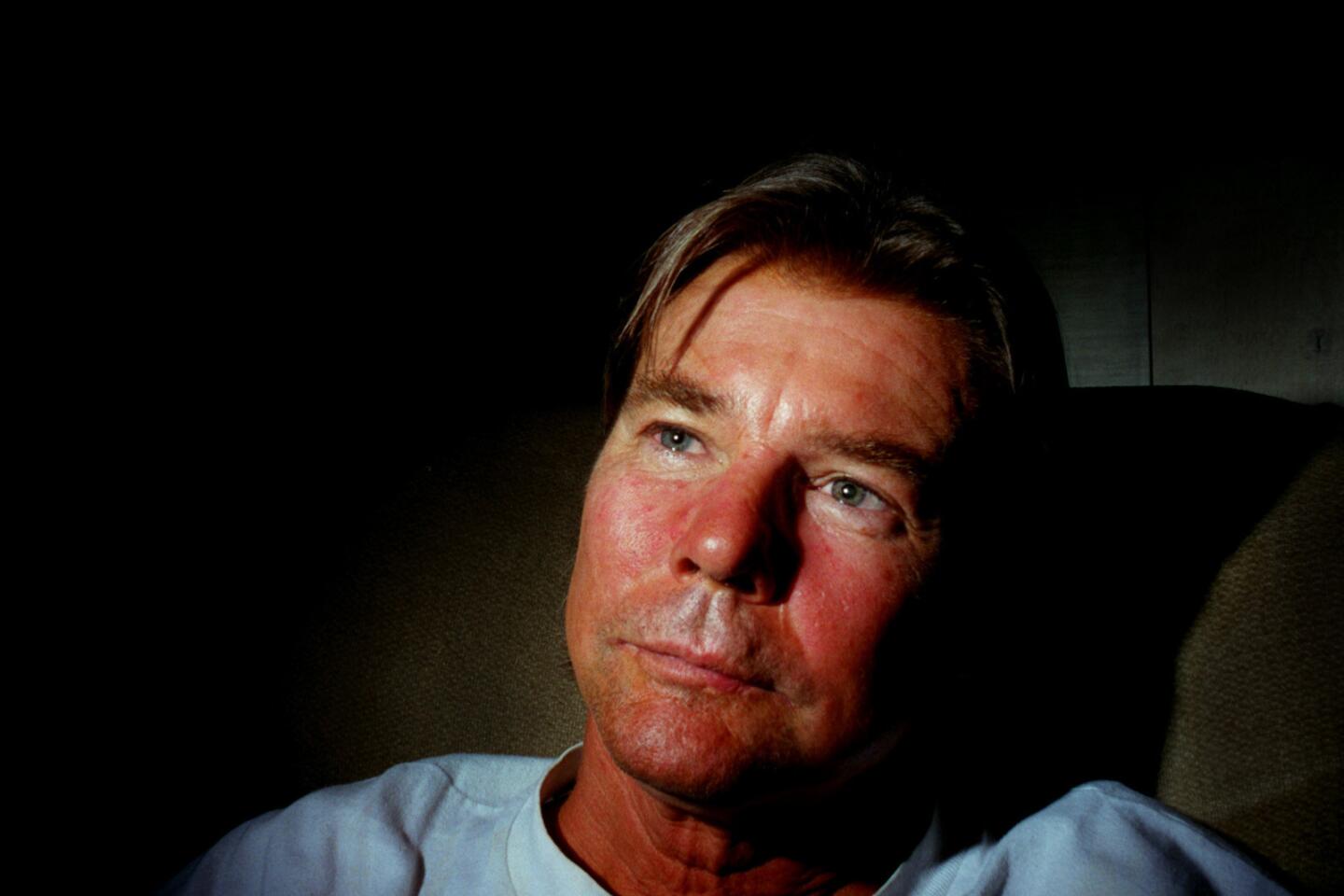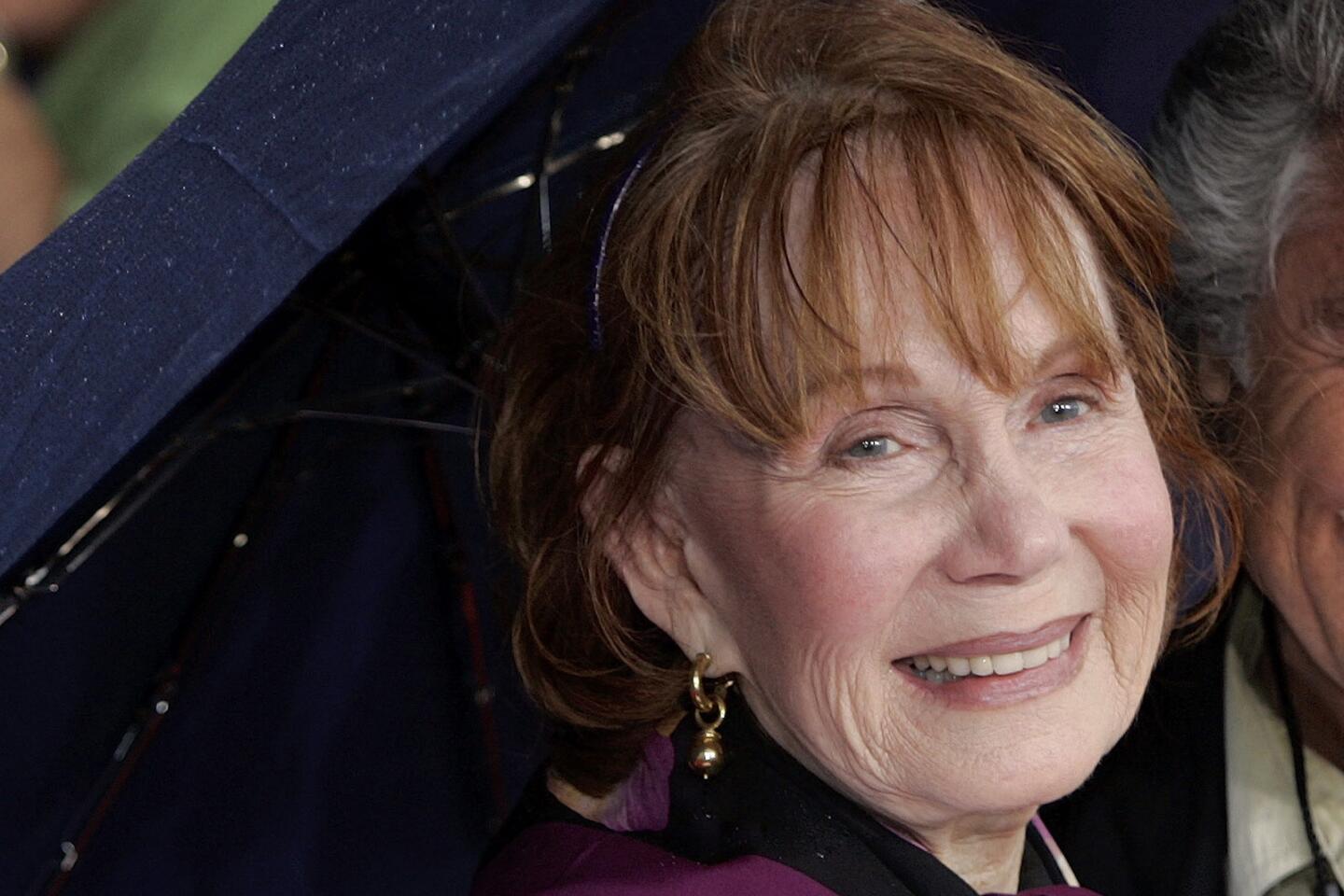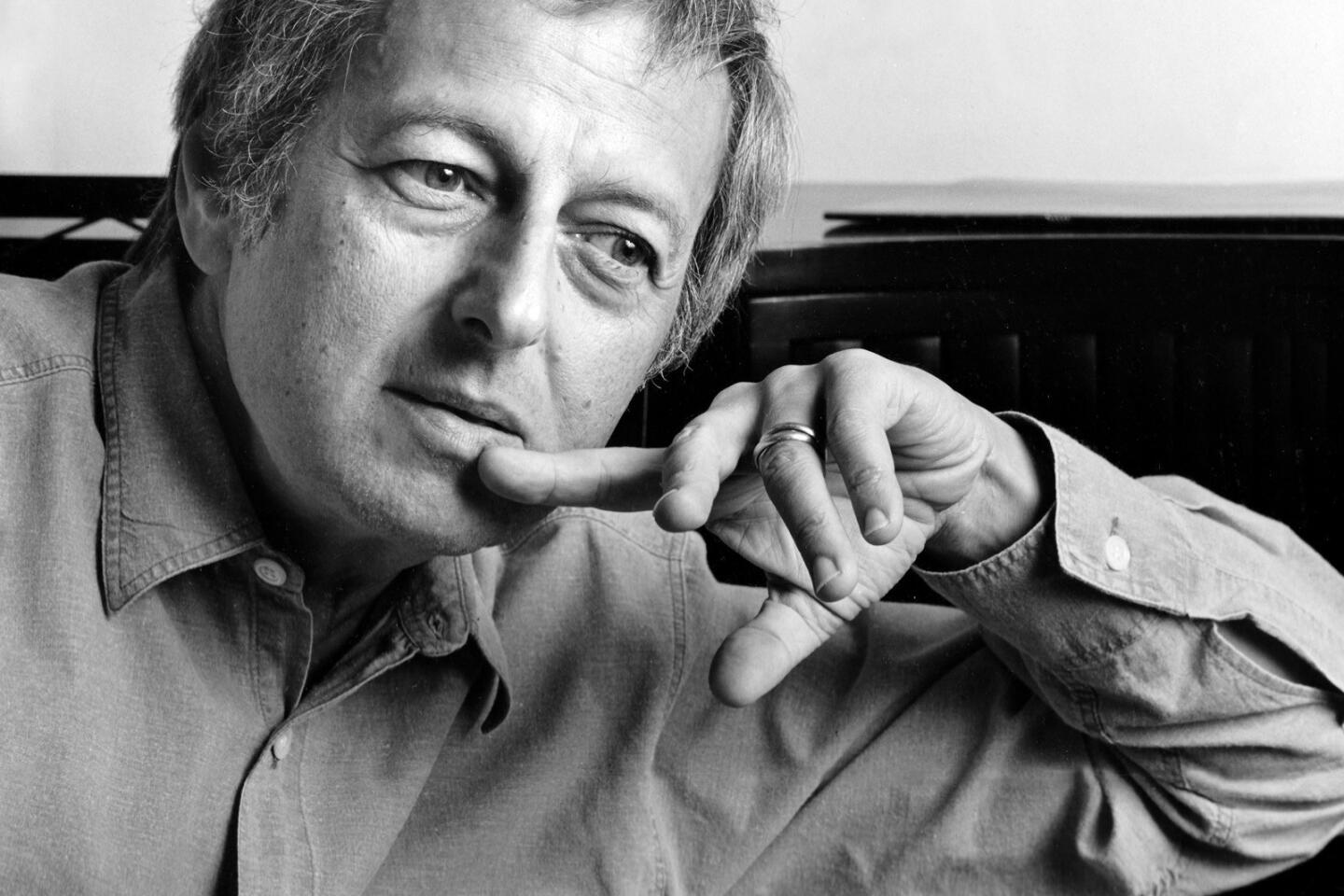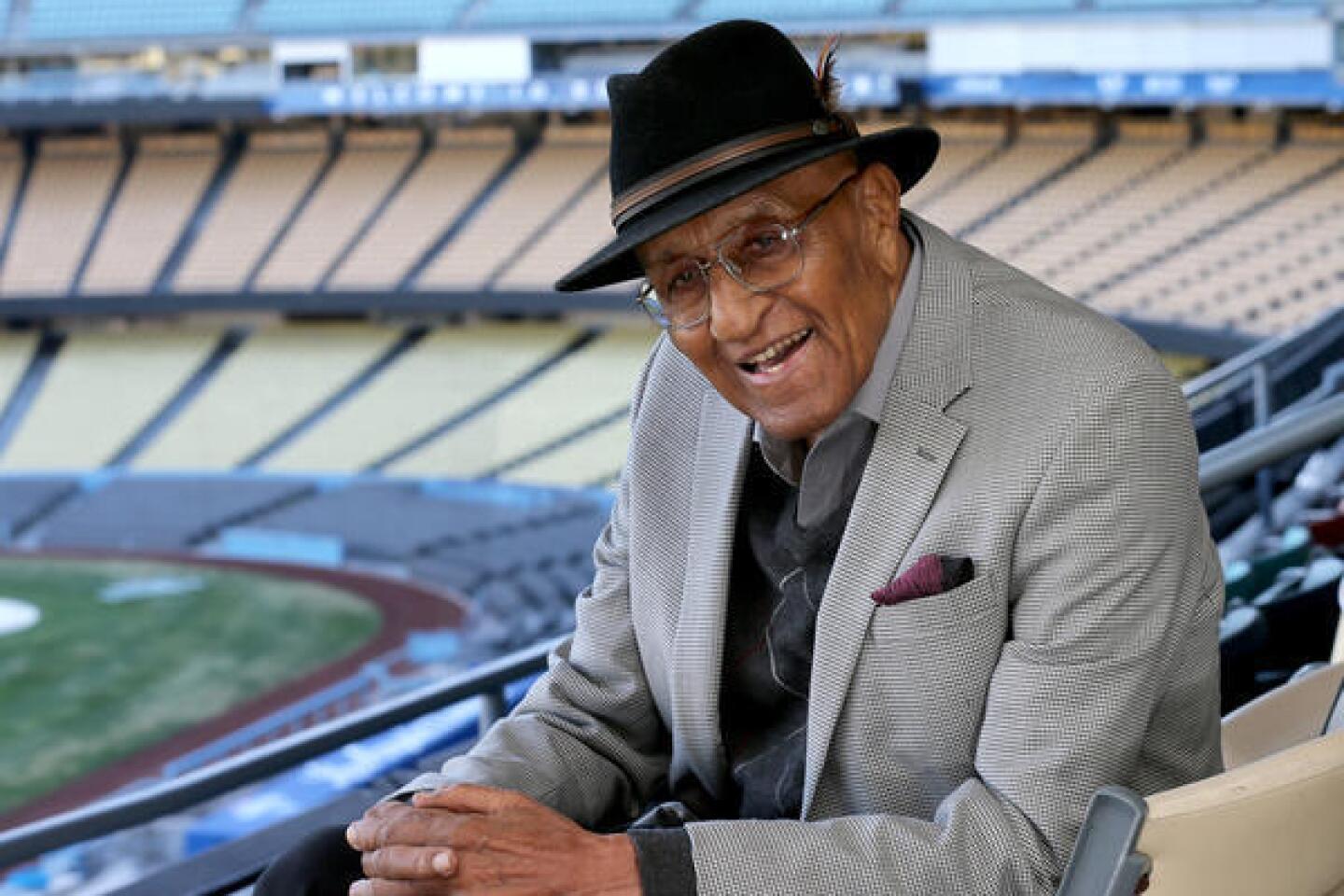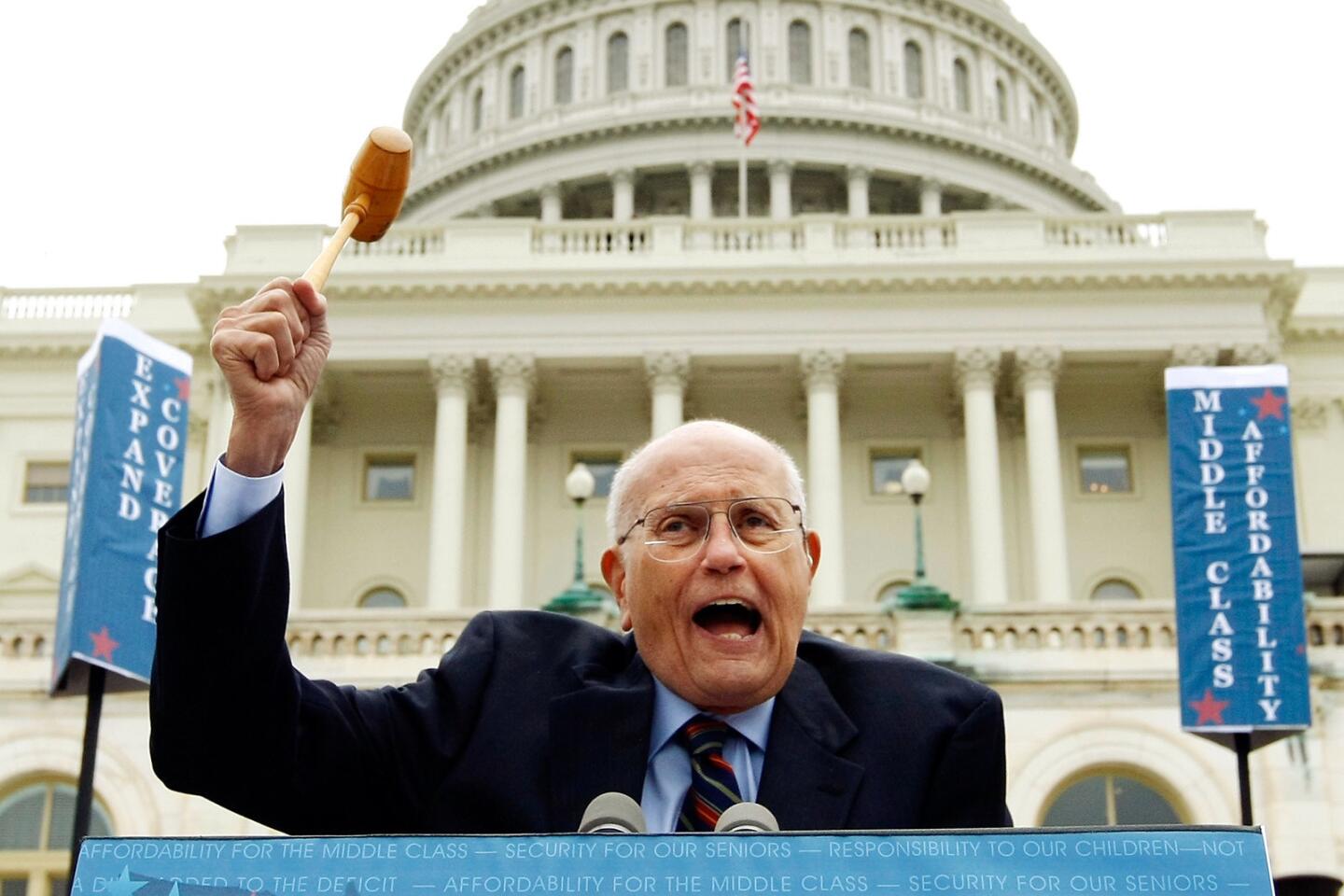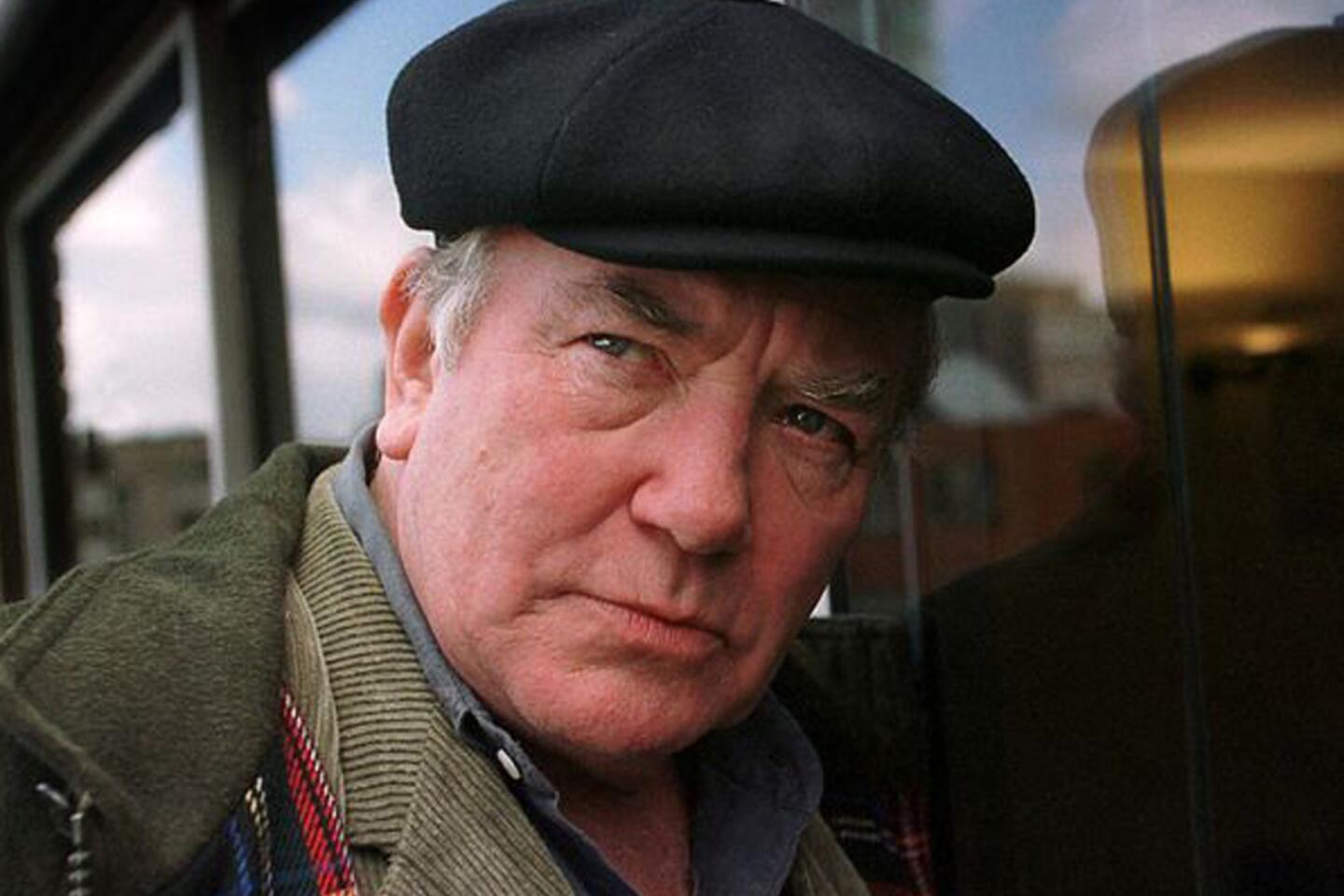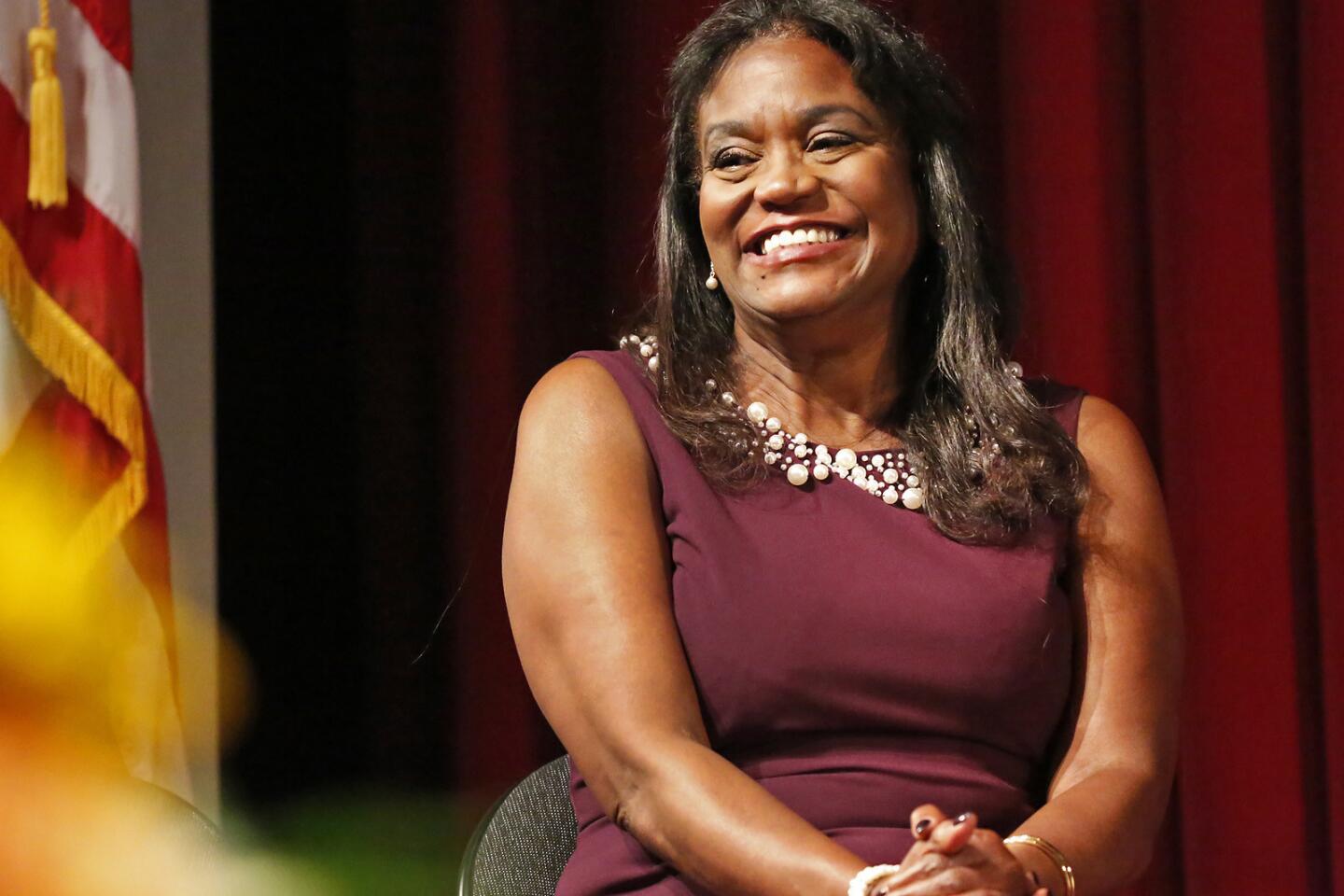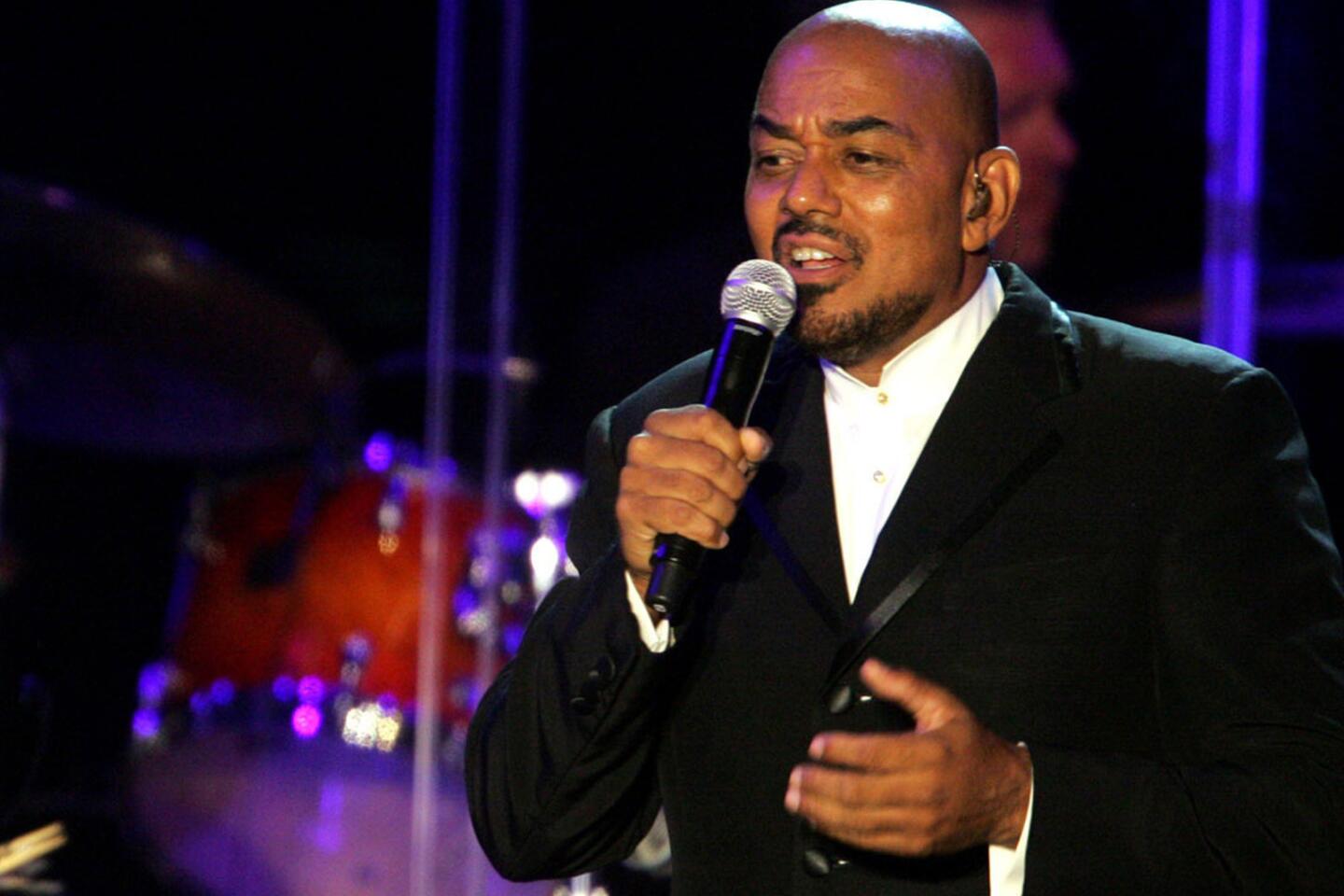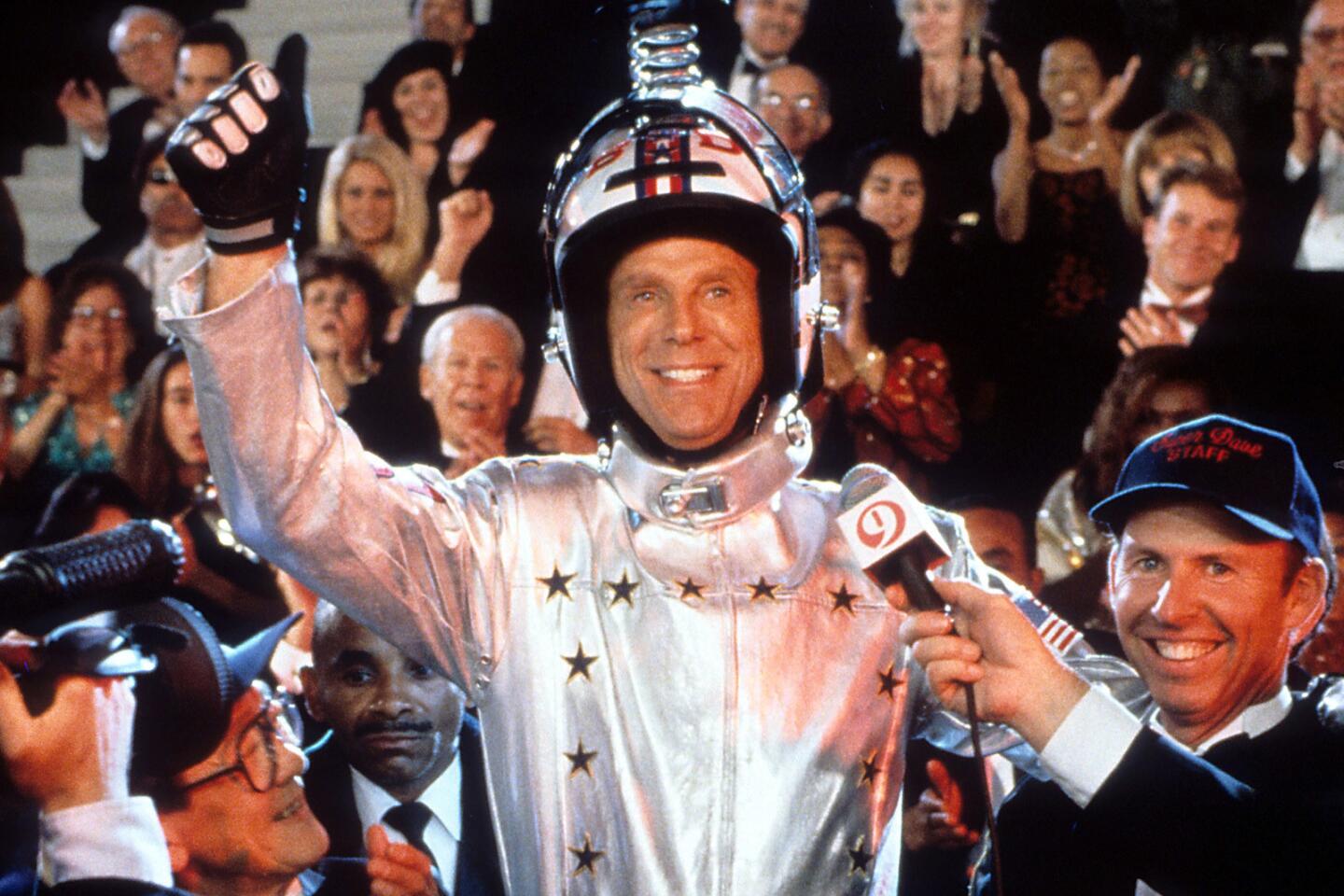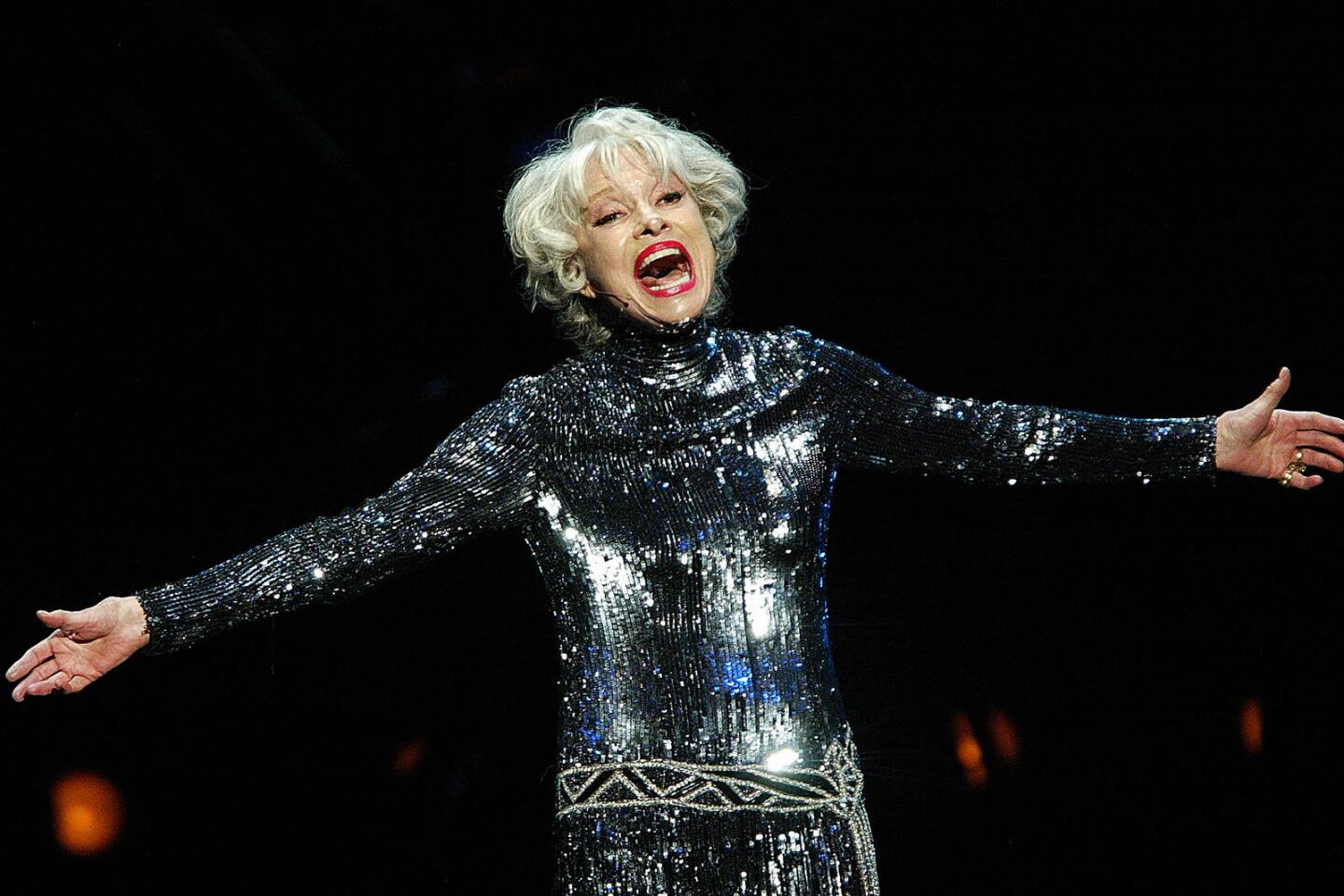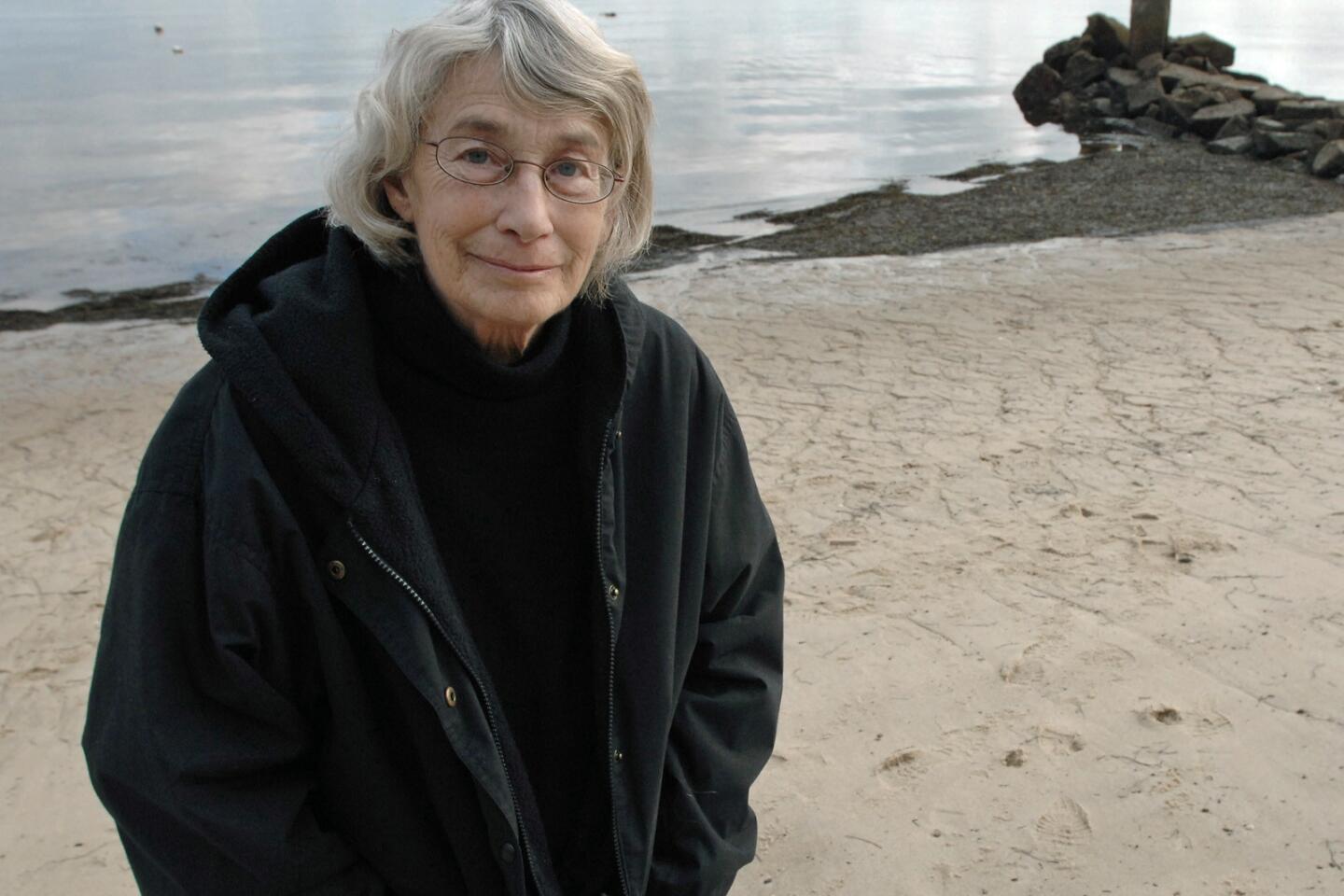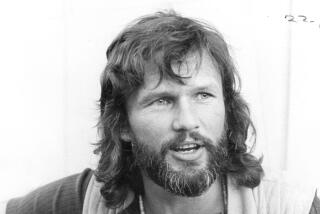To fully appreciate the way in which psychedelic rock pioneer Roky Erickson, who died Friday at 71, treated musical creativity at the beginning of his career, one need only reference his band the 13th Floor Elevators’ 1966 debut album.
“Recently, it has been possible for man to chemically alter his mental state and thus alter his point of view,” read the liner notes for “The Psychedelic Sounds of the Thirteenth Floor Elevators,” referencing use of the not-yet-outlawed hallucinogenic drug LSD.
Erickson’s creative output was forever altered, for better and worse, by the explosive cocktail of music and acid. With a feral yowl that telegraphed mania, the singer and songwriter led the 13th Floor Elevators through a series of hard, tripped-out late 1960s psychedelic anthems, including “You’re Gonna Miss Me,” “Slip Inside This House” and “She Lives in a Time of Her Own.”
Erickson’s death was announced by his brother, Mikel Erickson, on Facebook. “My brother Roky passed away peaceably today. Please allow us time. Music and laughter forever.”
The cause of death was not revealed.
Across a trio of Elevators albums and a dozen solo albums, Erickson’s eerie, oft-gothic lyricism illuminated a darkened world filled with gremlins, vampires, zombies, bloody hammers and two-headed dogs. “Don’t shake me Lucifer,” he sang on his Halloween-recorded 1987 live album “Evil One,” “I been up all night / and no suicide clock works.”
As if the words weren’t spooky enough, Erickson’s distinctive, soaring voice sealed the deal. Jumping octaves in ways that predicted heavy-metal belters such as Ronnie James Dio and Axl Rose, he sang as if dangling from a 13th-floor window.
The 13th Floor Elevators’ work received a post-breakup boost when the writer and guitarist Lenny Kaye included “You’re Gonna Miss Me” on his seminal 1972 collection, “Nuggets: Original Artyfacts from the First Psychedelic Era, 1965–1968.” Set alongside proto-punk songs by the Seeds, the Standells and the Count Five, “You’re Gonna Miss Me” became a secret handshake among fans of hard, weird rock music.
Erickson, who was born Roger Kynard Erickson in Austin, Tex., was revered by artists including R.E.M., T Bone Burnett, ZZ Top, Doug Sahm and the Jesus and Mary Chain, all of whom covered his work on the 1990 tribute album, “Where the Pyramid Meets the Eye.” Erickson, however, never broke into the mainstream.
Not that he had much of a chance. By the end of the 1960s he’d been arrested multiple times for drug possession and admitted to the Rusk State Hospital, a mental facility in East Texas. He’d reportedly consumed hundreds of tabs of acid by then, and over the years his attendants have suggested that the drug consumption affected Erickson’s already delicate mental well-being.
“Roky lived in so many worlds, you couldn’t keep up with him,” his longtime friend Bill Bentley told Variety. “He lived so much, and not always on this planet.”
Despite Erickson’s mental struggles, his voice could hardly be contained, and after retreating from the music scene for much of the 1970s, he returned to recording and continued to create work and tour as a solo artist throughout the rest of his life.
His reemergence was greeted with enthusiasm in the budding indie-rock world, most notably with his 1986 album “Don’t Slander Me.” A 2005 documentary, “You’re Gonna Miss Me,” received ample attention, even as it revealed the limits of Erickson’s capacities. In 2010, he teamed with Austin roots rock band Okkervil River for “True Love Cast Out All Evil.” True to its title, the work found Erickson on more solid ground, and less worried about monsters, than he once was.
Some of his most crucial solo work was recently resurrected for reissue by the acclaimed Light in the Attic imprint, inviting yet another generation to trace the artist’s long, meandering trip.
Erickson continued to tour, and became a beloved figure in his Austin birthplace. During an outdoor set in the ‘00s as part of the city’s annual South by Southwest music conference, his stage presence was as endearing as it was curious.
He dotted his concise between-song banter — “Thank you!” — with gleeful giggles. At times he seemed surprised that people were there watching him. At others, he tapped into the music, howled and reconnected with the present.
He leaned into “You’re Gonna Miss Me” as if making his case for the first time. “I gave you the warning — but you never heeded it,” he sang. “How can you say you miss my loving — when you never needed it?”
After another pleading verse, Erickson moved into the chorus with a gleeful sense of vindication: “You didn’t realize,” he sang, rubbing it in through repetition. “You’re gonna miss me.” By the time the song faded out, few doubters remained.
2/33
Pioneering shock jock Don Imus was one of radio’s most popular and polarizing figures. Born in Riverside, he became a top broadcaster in New York, but he also sparked a national firestorm in 2007 with a racist remark about the Rutgers University women’s basketball team. He was 79. (Richard Drew / Associated Press)
3/33
Cokie Roberts covered Washington from Jimmy Carter to Donald Trump for NPR and ABC News. A co-anchor of the ABC Sunday political show “This Week” from 1996 to 2002, Roberts devoted most of her attention to Congress, where her father Hale Boggs was a House majority leader until his death in 1972. She was 75. (Donna Svennevik / Walt Disney Television via Getty)
4/33
T. Boone Pickens followed his father into the oil and gas business and built a reputation as a maverick, unafraid to compete against industry giants. In the 1980s, Pickens sought riches on Wall Street by leading bids to take over big oil companies including Gulf, Phillips and Unocal. Even when he failed to gain control of his targets, he scored huge payoffs by selling shares back to the company and dropping the hostile takeover bid. He was 91. (Riccardo Savi / Getty Images)
5/33
When Robert Mugabe took over as Zimbabwean president in 1980, he was celebrated as a hero in the liberation war against Britain. But after international sanctions, a series of fraudulent elections and an economic collapse sparked by the seizure of white-owned farms, Mugabe become a pariah and retired in 2017 rather than face impeachment. He was 95. (Tsvangirayi Mukwazhi / Associated Press)
6/33
David Koch was the aide de camp to Charles, his older brother, as the two leveraged the family fortune to push American politics to the right. The Koch brothers pushed the boundaries of dark money in politics and fueled a backlash against environmental regulations and government programs such as healthcare and mass transit. He was 79. (Phelan M. Ebenhack / Associated Press)
7/33
Peter Fonda was the son of a classic Hollywood star and a key player in the 1969 countercultural road trip saga “Easy Rider,” which he co-wrote and produced. The screenplay earned Fonda his first Academy Award nomination; his second came in the lead actor category for the 1997 independent film “Ulee’s Gold.” He was 79. (AP)
8/33
Hard-line Chinese premier Li Peng was best-known for ending the 1989 Tiananmen Square protests with a bloody crackdown by troops. A keen political infighter, he spent two decades at the pinnacle of power before retiring in 2002, leaving a legacy of prolonged economic growth and authoritarian control. He was 90. (AP)
9/33
Chris Kraft, shown with President Reagan in 1981, never flew in space but was the creator and longtime leader of NASA’s Mission Control. The legendary engineer served as flight director for all Mercury flights and seven of the Gemini flights, helped design the Apollo missions and later oversaw the beginning of the shuttle era at Johnson Space Center. He died just two days after the 50th anniversary of Apollo 11’s moon landing. He was 95. (AP)
10/33
Supreme Court Justice John Paul Stevens joined the court as a centrist Republican but emerged in his later years as the leading voice of its liberal bloc. Appointed by President Ford, Stevens played a key role in decisions that preserved a woman’s right to abortion, maintained a strict separation of church and state, and put limits on the death penalty. He was 99. (AP)
11/33
Billionaire Ross Perot blazed across America in the 1990s as a third-party presidential candidate and won nearly 19% of the popular vote in the 1992 election, finishing third behind Democrat Bill Clinton and Republican President George H.W. Bush. The diminutive Texan was an early tech entrepreneur who founded Electronic Data Systems, a computer services company, in 1962 with $1,000 in savings. He was 89.
(Peter Muhly / AFP/Getty Images) 12/33
Pitcher Tyler Skaggs grew up an Angels fan in Santa Monica and joined the organization as a first-round draft pick. He battled injuries throughout his career but started 24 games last season and showed signs of dominance this year. He was 27.
(Charlie Riedel / AP) 13/33
Judith Krantz wrote blockbuster romance novels including “Scruples” and “Princess Daisy” that sold more than 80 million copies worldwide. Her books have been translated into more than 50 languages, and seven have been adapted as TV miniseries, with her late husband, Steve Krantz, serving as executive producer for most. She was 91.
(Aaron Rapoport / Getty Images) 14/33
Italian director Franco Zeffirelli was best-known for his films, including the 1968 critical and box office hit “Romeo and Juliet” and a 1990 “Hamlet” with Mel Gibson. His massive opera productions included a version of Puccini’s “La Boheme” that became the most-often presented production in the Metropolitan Opera’s history. He was 96.
(Paolo Cocco / AFP/Getty Images) 15/33
Danish-born socialite Claus von Bulow, left, shown with attorney Alan Dershowitz in April 1985, was convicted in 1982 and then acquitted three years later on two counts of attempting to murder his American heiress wife, Sunny, with injections of insulin. The high-profile case has been called one of the most sensational courtroom dramas in modern U.S. history. He was 92.
(Charles Krupa / AP) 16/33
Herman Wouk explored the moral fallout of World War II in the Pulitzer Prize-winning “The Caine Mutiny” (1951) and other widely read books. Determined to produce a “great war book,” Wouk wrote “The Winds of War” and its sequel, “War and Remembrance,” in the 1970s, and the two sweeping novels became the basis for a pair of television miniseries. He was 103.
(Douglas L Benc Jr / AP) 17/33
Architect I.M. Pei had a client list that included French President Francois Mitterrand for the Louvre and Jacqueline Kennedy Onassis for the John Fitzgerald Kennedy Library in Boston. Among several Pei projects in the Los Angeles area are the former Creative Artists Agency headquarters in Beverly Hills and the Ronald Reagan UCLA Medical Center. He was 102.
(Pierre Gleizes / AP Photo) 18/33
Tim Conway came to prominence on television as a bumbling ensign in “McHale’s Navy” opposite Ernest Borgnine from 1962 to 1966, then became a regular on “The Carol Burnett Show,” where he famously developed a knack for making costar Harvey Korman crack up. He also starred in the “Apple Dumpling Gang” movies in the 1970s and gained fame with a new generation as the voice of Barnacle Boy on “SpongeBob SquarePants.” He was 85.
(George Brich / AP) 19/33
John Singleton’s 1991 debut, “Boyz n the Hood,” was an inner-city coming-of-age story that earned two Oscar nominations and put the young filmmaker in the company of emerging black moviemakers such as Spike Lee and Mario Van Peebles. Singleton went on to direct “Poetic Justice” (1993), “Higher Learning” (1995) and “Baby Boy” (2001), which featured Taraji P. Henson at the start of her career. He was 51.
(Christopher Polk / AFP/Getty Images) 20/33
Grammy-nominated rapper Nipsey Hussle was gunned down outside his Marathon Clothing store in the same South L.A. neighborhood where he was known as much for his civic work as he was for his hip-hop music. He was 33.
(Matt Winkelmeyer / Getty Images for Warner Music) 21/33
Sidney Sheinberg, right, with Steven Spielberg and Lea Adler, Spielberg’s mother, at a 1994 Beverly Hilton gala.
(Shepler, Lori / Los Angeles Times) 22/33
Jan-Michael Vincent was a golden boy of 1970s Hollywood action films and went on to star in the mid-1980s TV adventure series “Airwolf.” But his erratic behavior and cocaine consumption was a major reason “Airwolf” was canceled. He was 74 by most accounts, but the death certificate listed him as 73.
(Alex Garcia / Los Angeles Times) 23/33
Sitcom star Katherine Helmond had memorable roles as ditzy matriarchs in “Soap,” “Who’s the Boss?” and “Coach.” Her work as Jessica Tate on the 1970s parody “Soap” earned her seven Emmy nominations, and she was nominated again in 2002 for her guest role in “Everybody Loves Raymond.” Helmond also starred in director Terry Gilliam’s films “Brazil” and “Time Bandits.” She was 89.
(Chuck Burton / AP) 24/33
André Previn conquered L.A. with his artistic genius twice: first as an Academy Award winning composer of Hollywood movie music, then as music director of the Los Angeles Philharmonic. A conductor and pianist who toggled between classical, pop and jazz, Previn won Oscars for “My Fair Lady” (1964), “Irma la Douce” (1963), “Gigi” (1958) and “Porgy and Bess” (1959). He was 89.
(Patrick Downs/ Los Angeles Times) 25/33
Dodgers right-hander Don Newcombe was the first outstanding African American pitcher in the major leagues and in 1949 became the first to start a World Series game. The 6-foot-4, 240-pound hurler was also the first player in major league history to have won the rookie of the year, Most Valuable Player and Cy Young awards. He was 92.
(Luis Sinco / Los Angeles Times) 26/33
Michigan Democrat John Dingell Jr. used his considerable power in the House of Representatives to uncover government fraud and defend the interests of the automobile industry. Known as “Big John” and “The Truck” for his forceful nature and 6-foot-3-inch frame, Dingell was the longest-serving member of Congress in U.S. history. He was 92.
(Win McNamee / Getty Images) 27/33
Albert Finney starred in films as diverse as “Tom Jones,” “Annie” and “Skyfall.” One of the most versatile actors of his generation, he played an array of roles, including Winston Churchill, Pope John Paul II, a southern American lawyer and an Irish gangster. He was 82.
(Graham Barclay / For The Times) 28/33
Michelle King was the first African American woman to lead Los Angeles Unified School District. Her major accomplishment was pushing the graduation rate to record levels by allowing students to quickly make up credits for failed classes. She was 57.
(Al Seib / Los Angeles Times) 29/33
Grammy-winning singer and songwriter James Ingram topped the charts in the ‘80s with hits like “Baby, Come to Me” and “Somewhere Out There.” He also co-wrote the Michael Jackson hit “P.Y.T. (Pretty Young Thing).” He was 66.
(Stefano Paltera / AP) 30/33
Emmy Award-winning writer Bob Einstein was best known as stuntman Super Dave Osborne, whose feats always went wrong. The comedy veteran got his start writing for 1970s variety shows such as “The Smothers Brothers Comedy Hour,” and he later played Larry David’s devout friend Marty Funkhouser on HBO’s “Curb Your Enthusiasm.” He was 76.
(Archive Photos / Getty Images) 31/33
Carol Channing was a Broadway star best known for her enduring portrayal of the title character in the musical “Hello, Dolly!” A winner of three Tony Awards, including one for lifetime achievement, she appeared in the play at least 5,000 times. She was 97.
(Frederick M. Brown/Getty Images / Frederick M. Brown/Getty Images) 32/33
Mary Oliver, one of the country’s most popular poets, focused on spirituality, nature and New England. Her poems won the Pulitzer Prize in 1984 and the National Book Award in 1992. She was 83.
(Josh Reynolds / For the Times) 33/33
Herb Kelleher built Southwest Airlines into the biggest discount carrier and set the standard for budget air travel for more than three decades. He and co-founder Rollin King used a formula of short, no-frills trips that spawned dozens of imitators. He was 87.
(Ed Betz / AP) For tips, records, snapshots and stories on Los Angeles music culture, follow Randall Roberts on Twitter and Instagram: @liledit. Email: randall.roberts@latimes.com.



